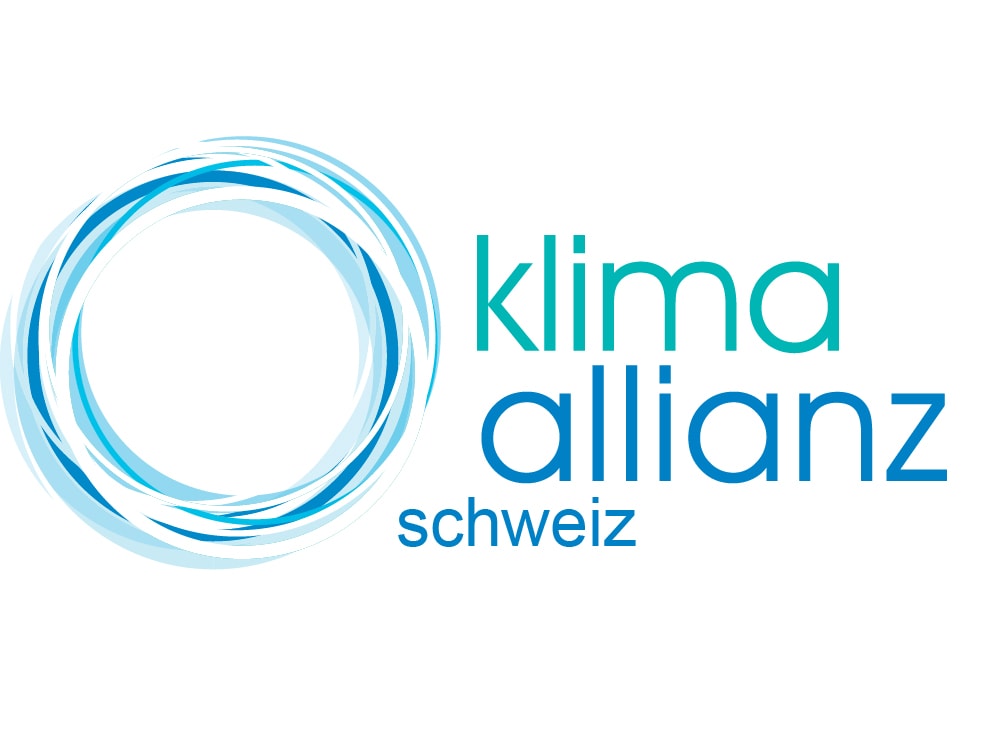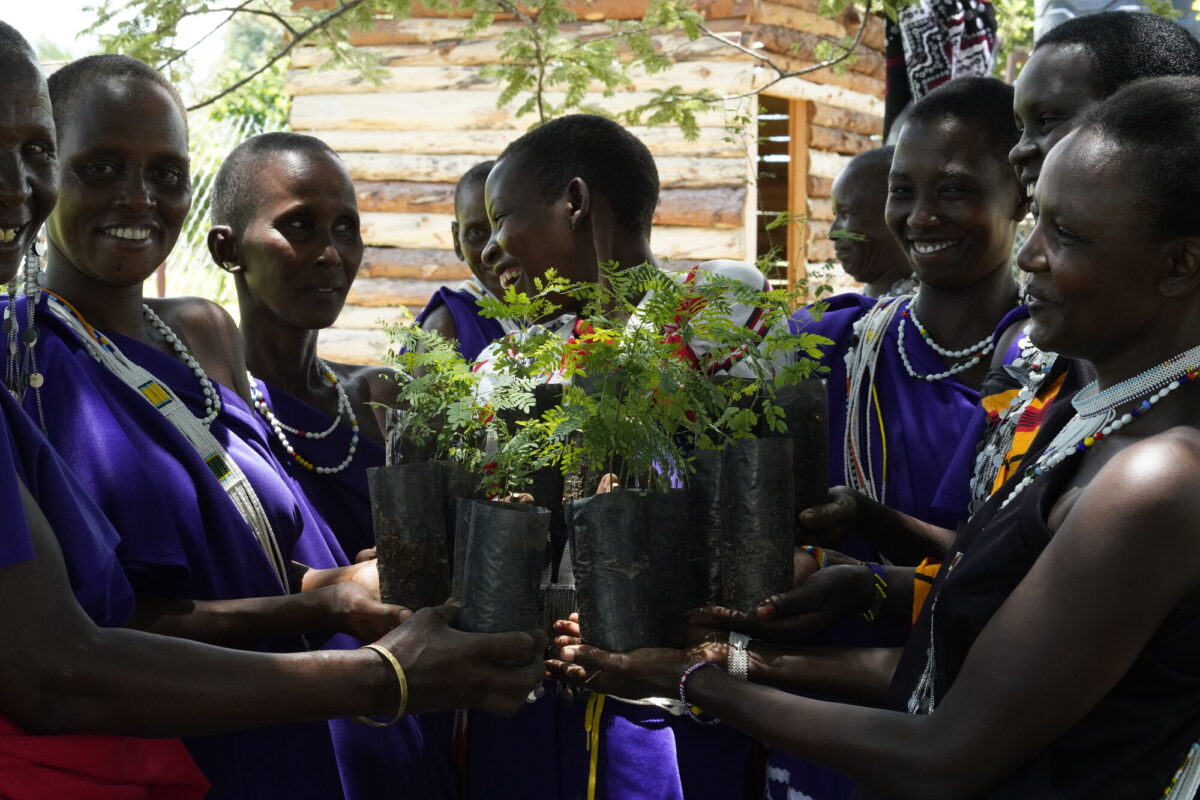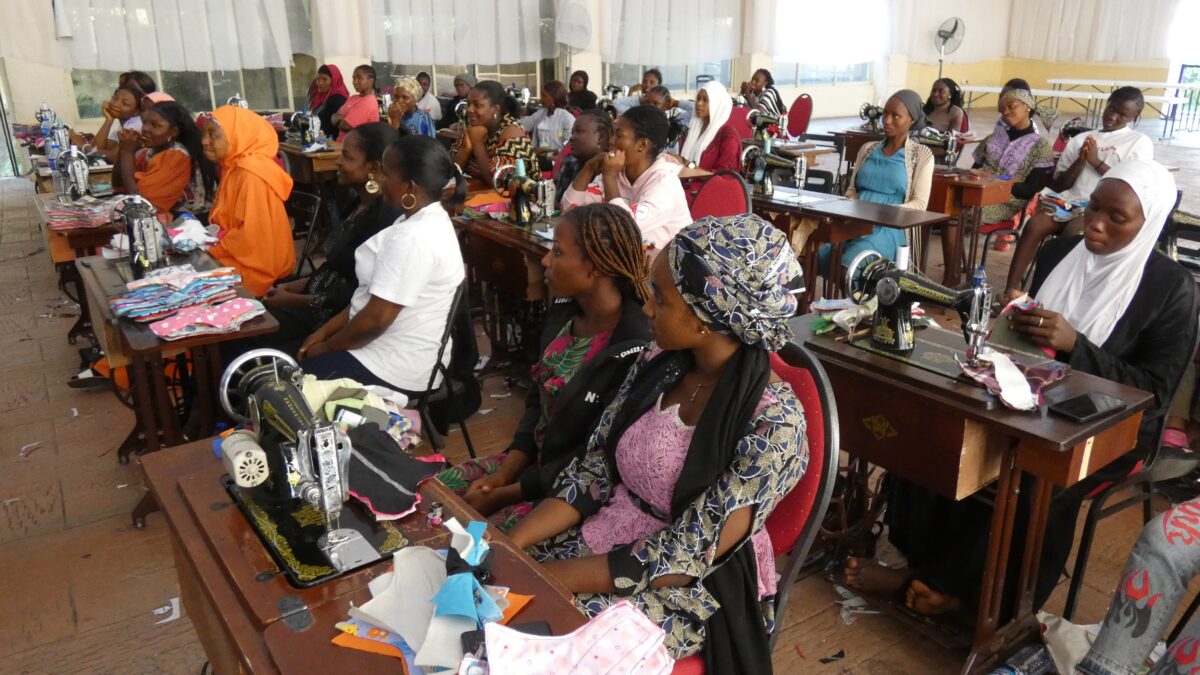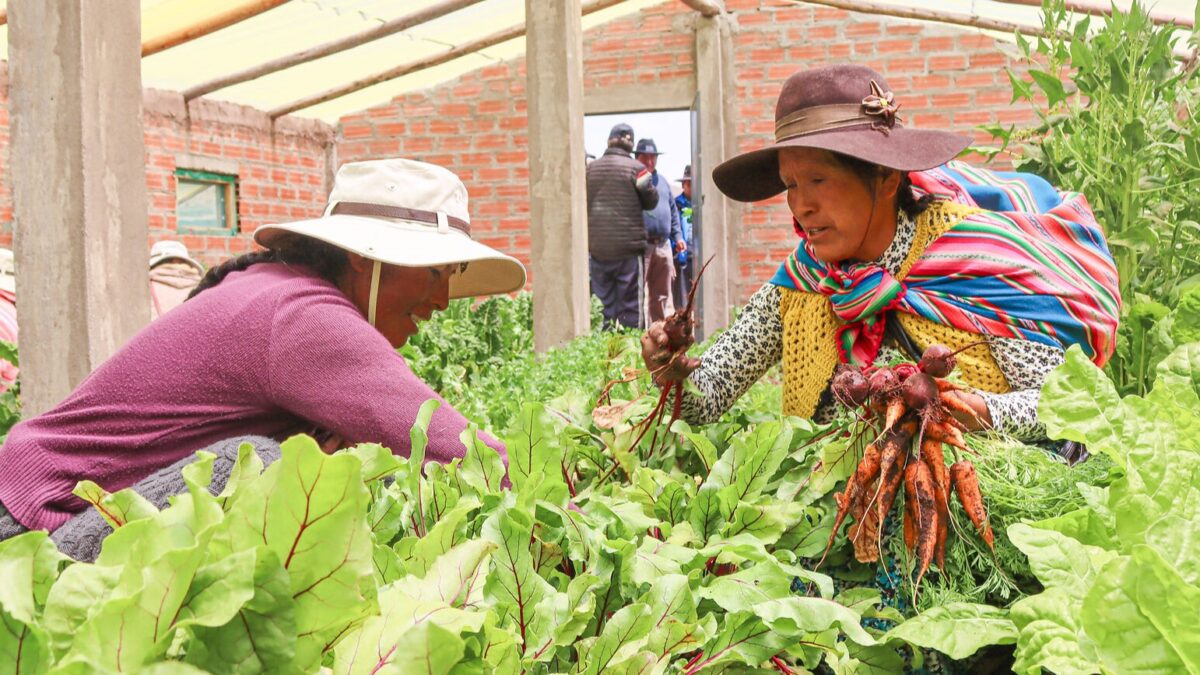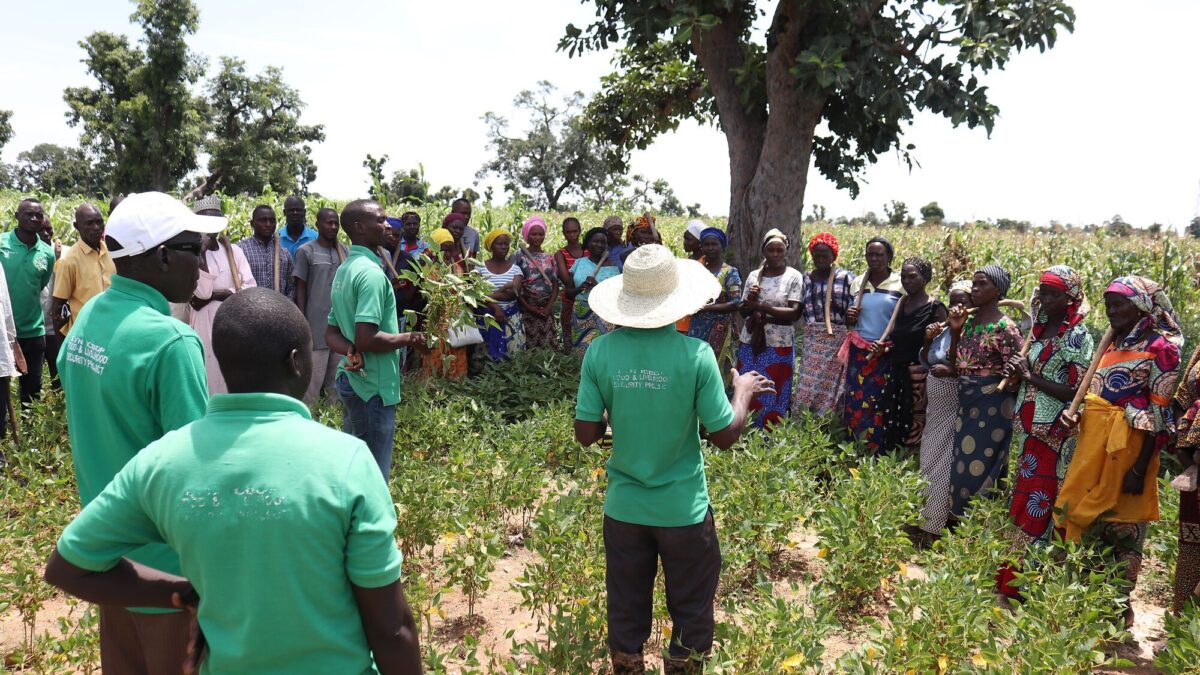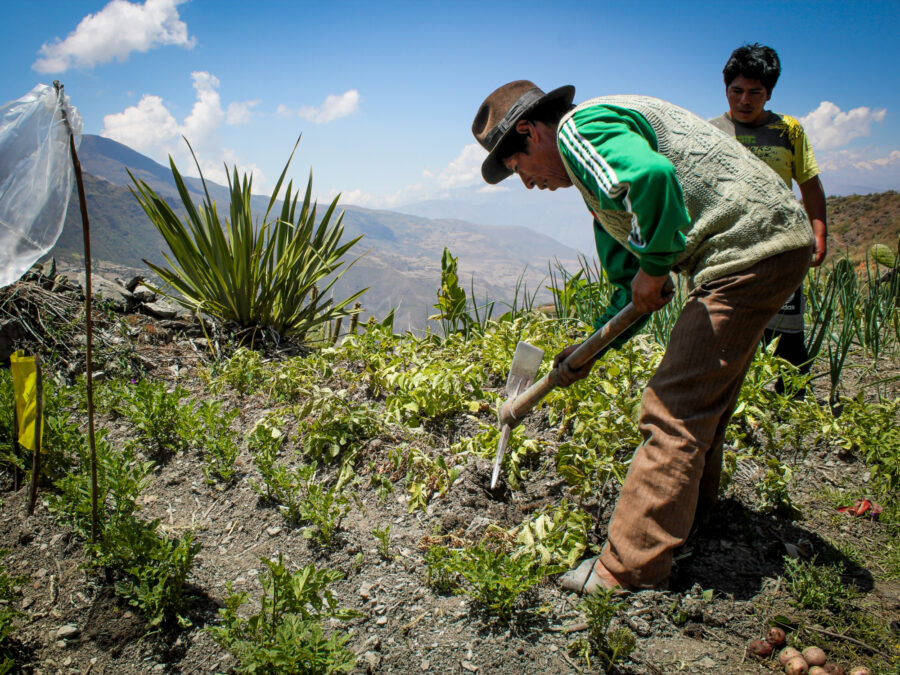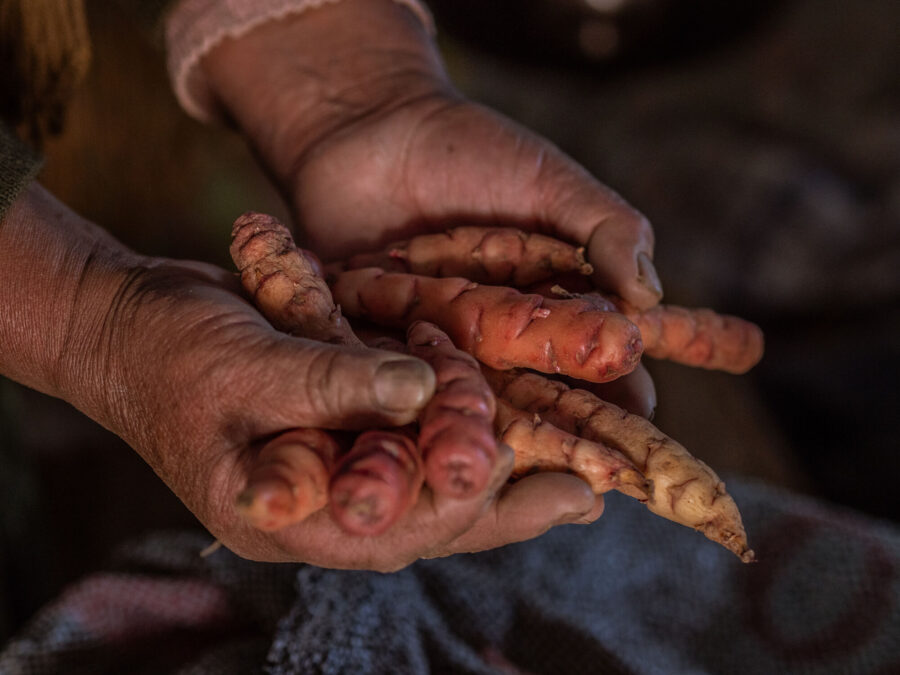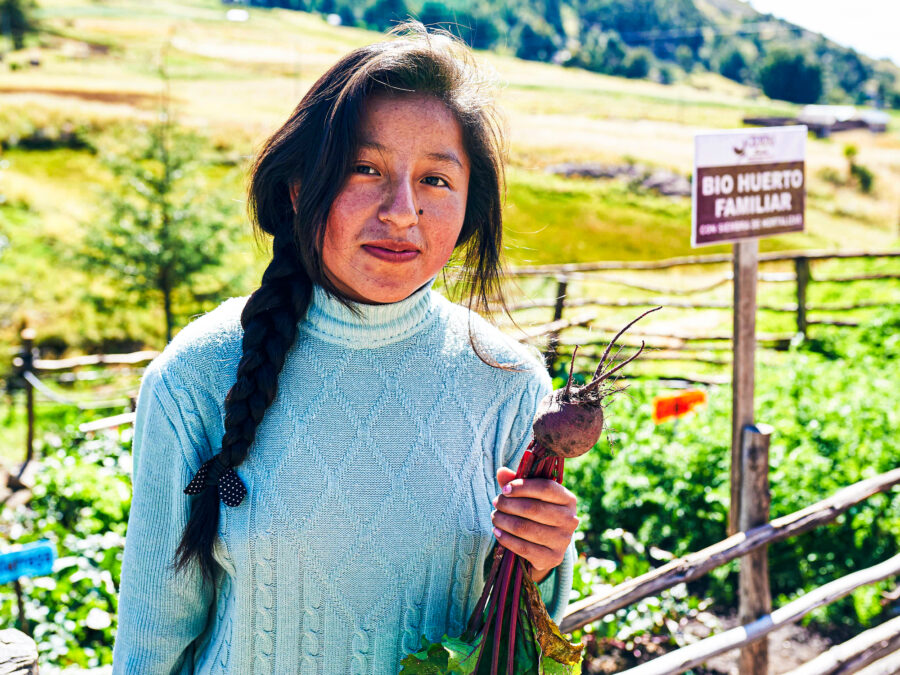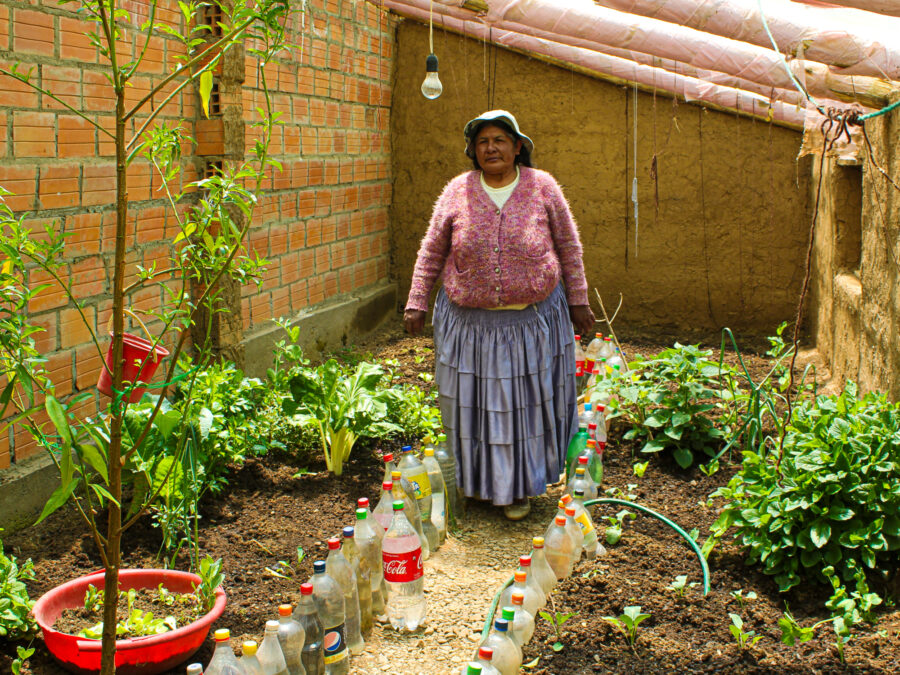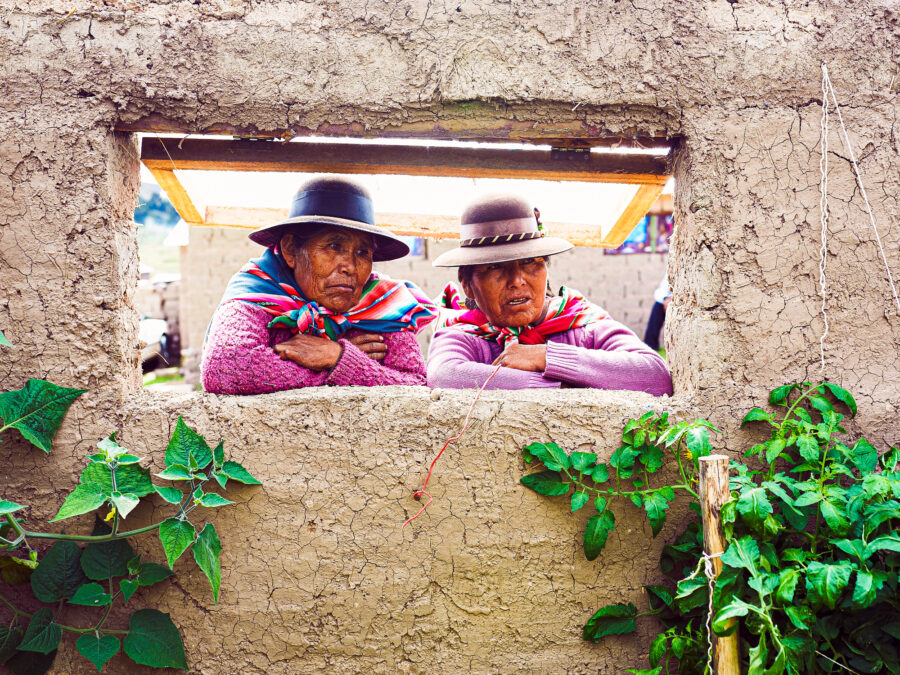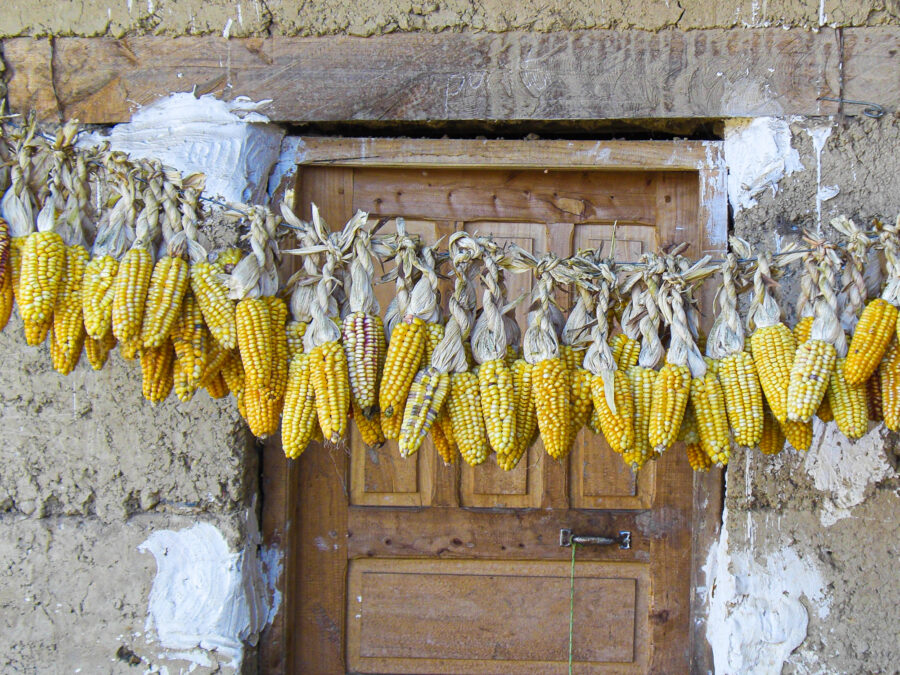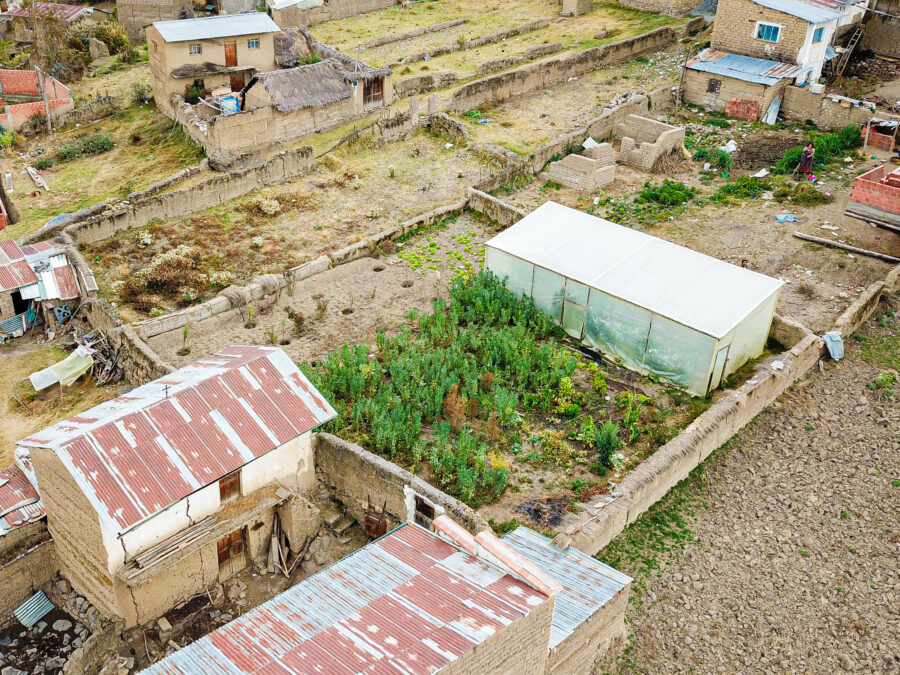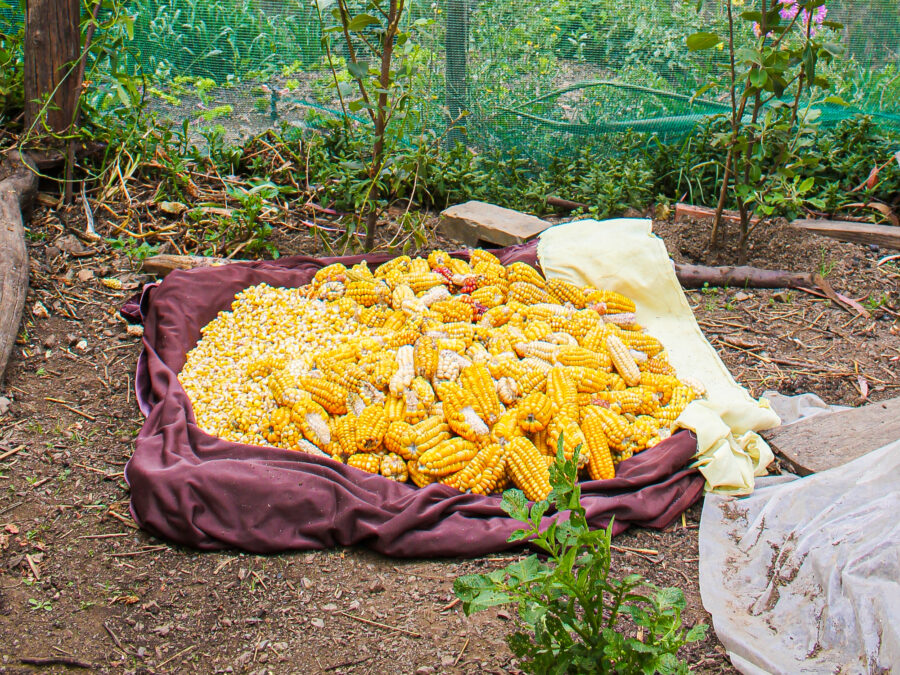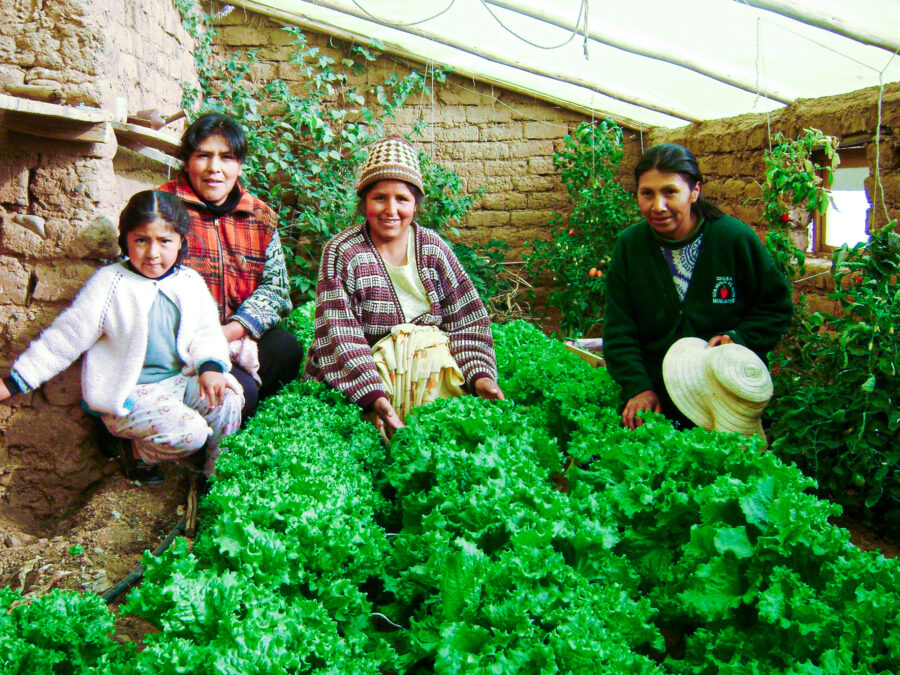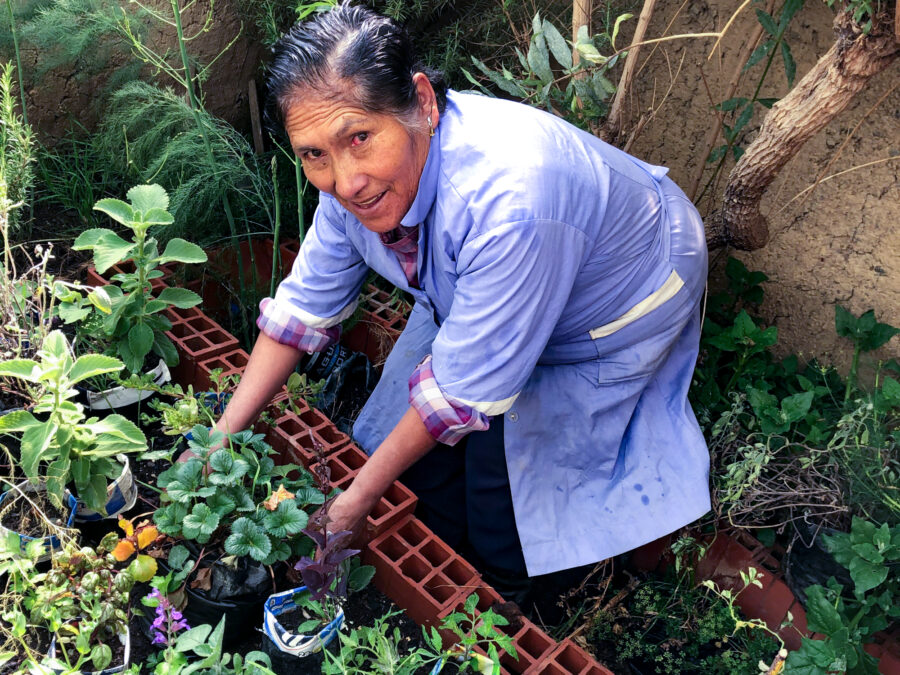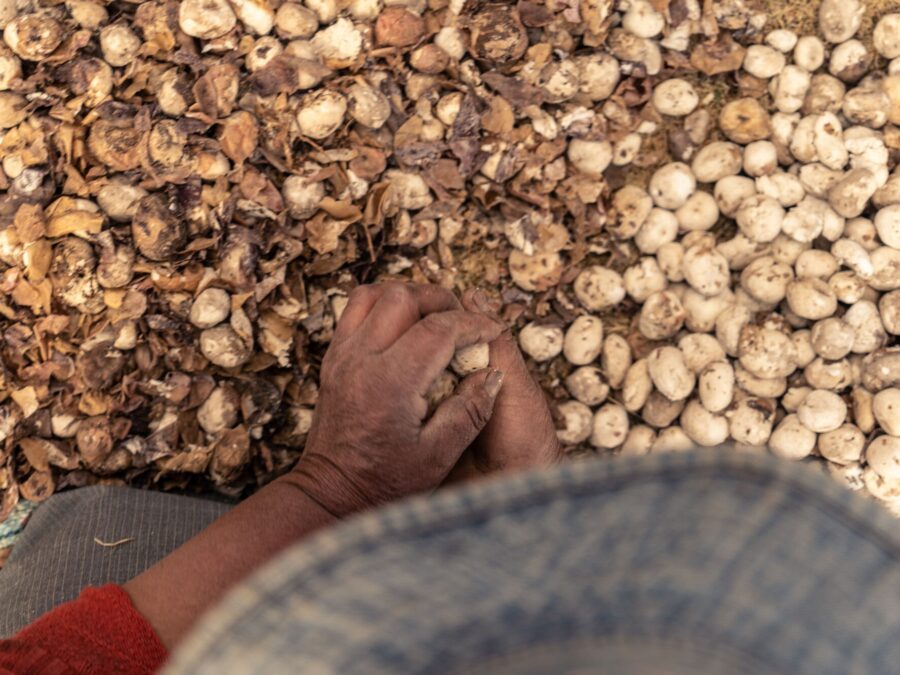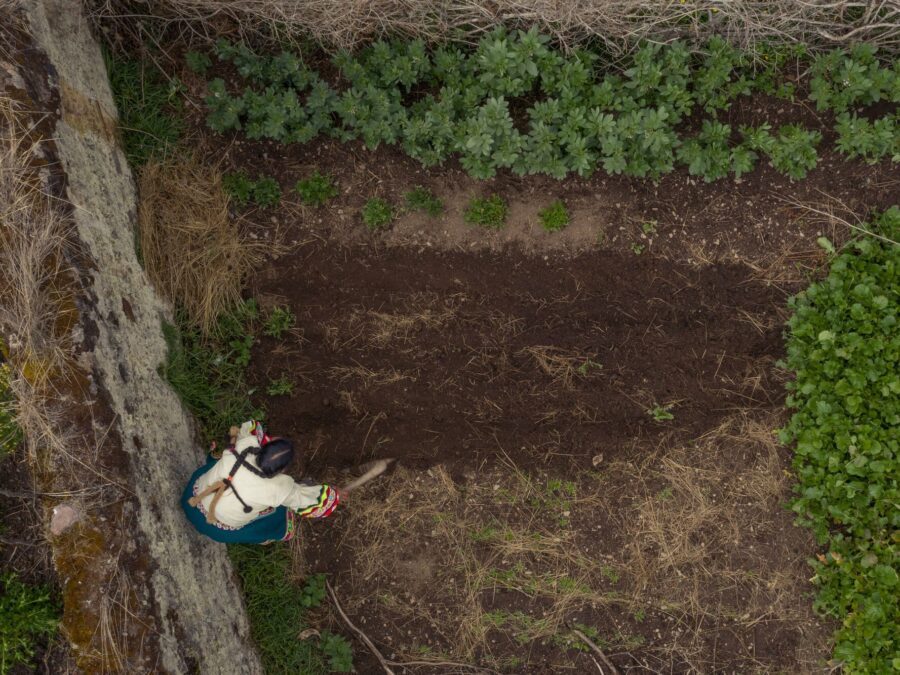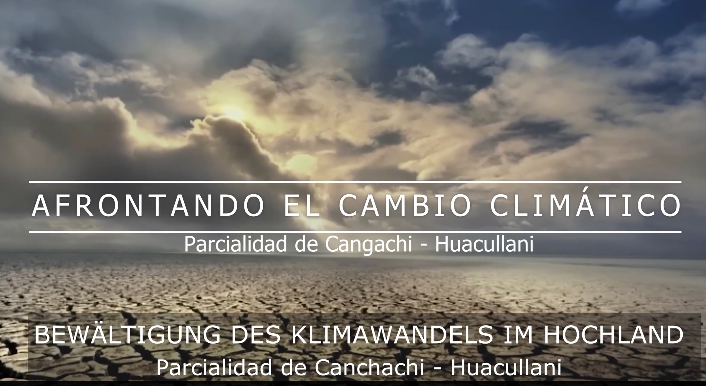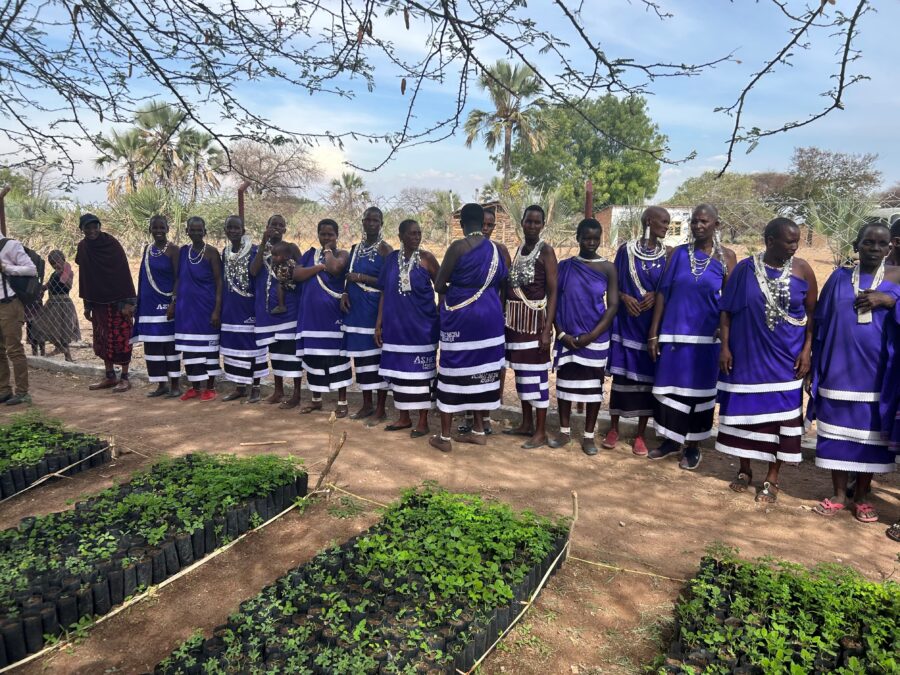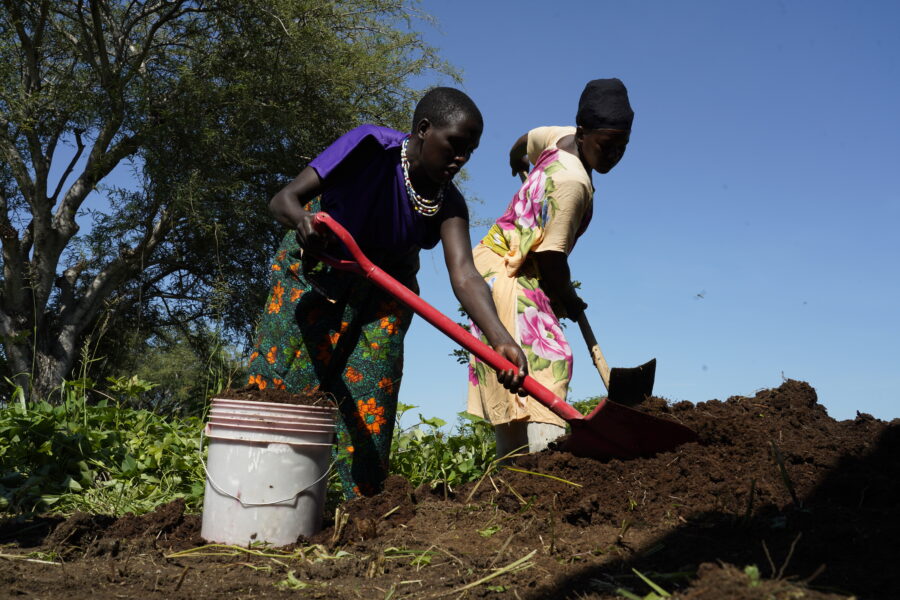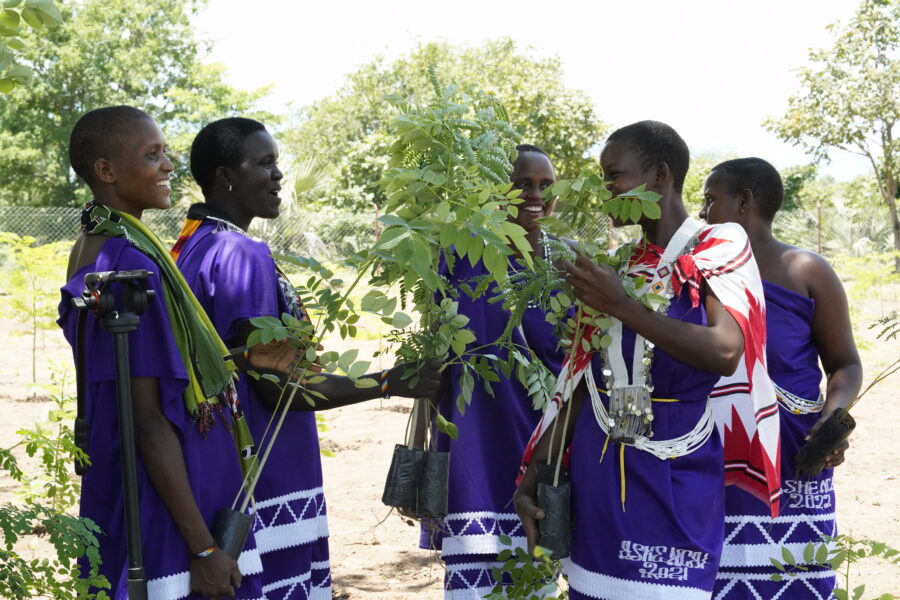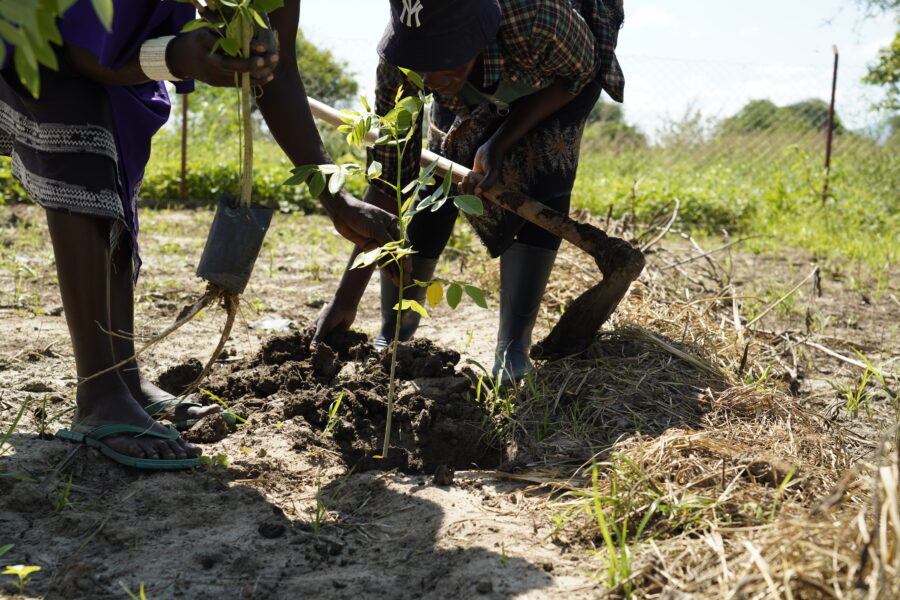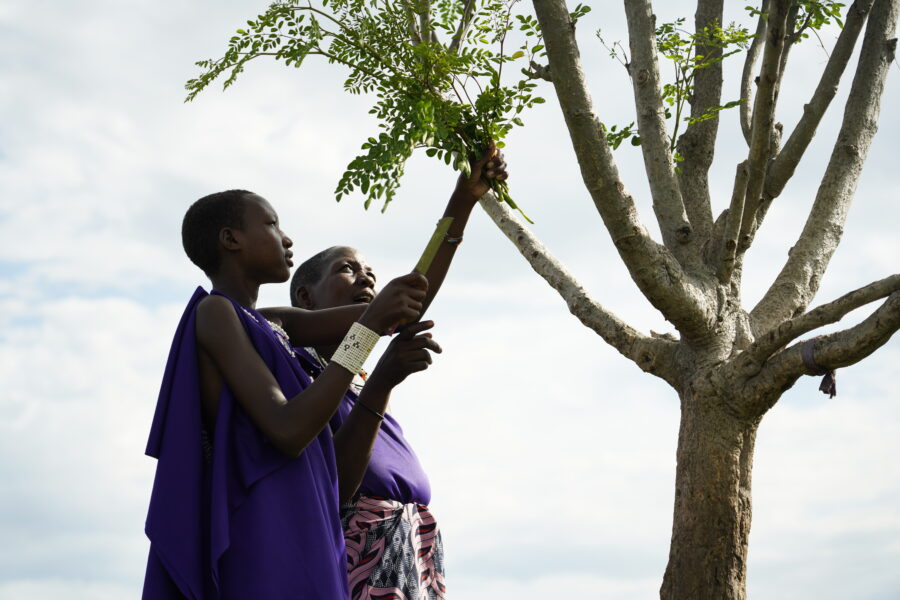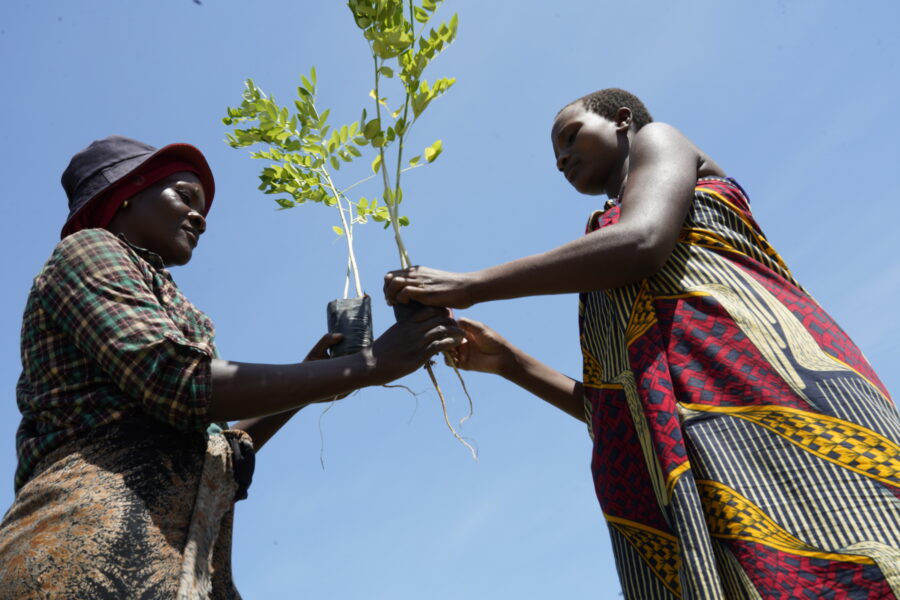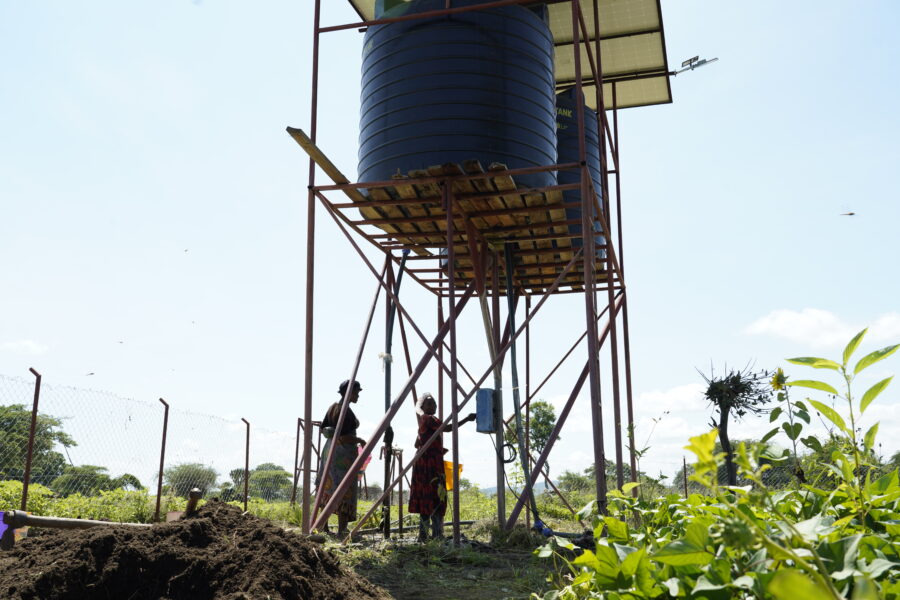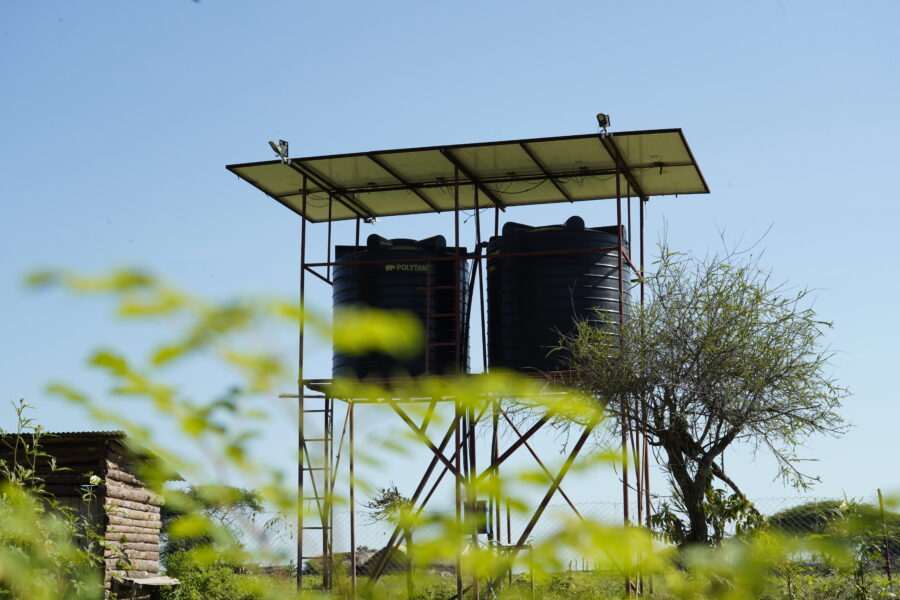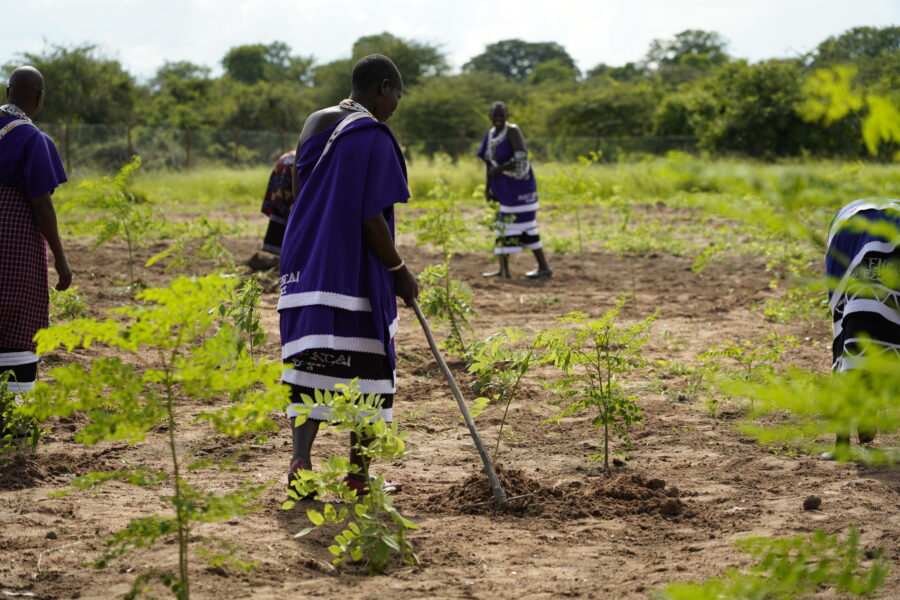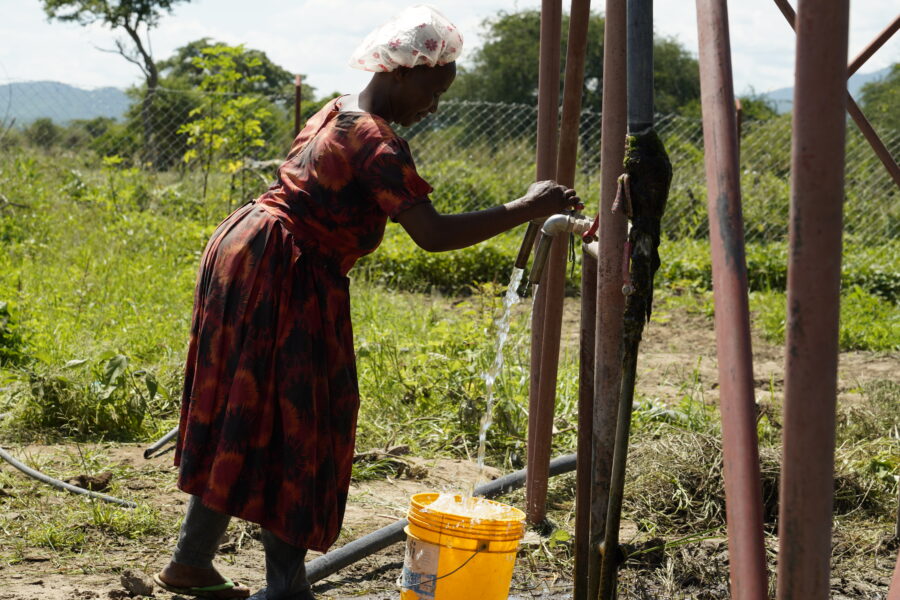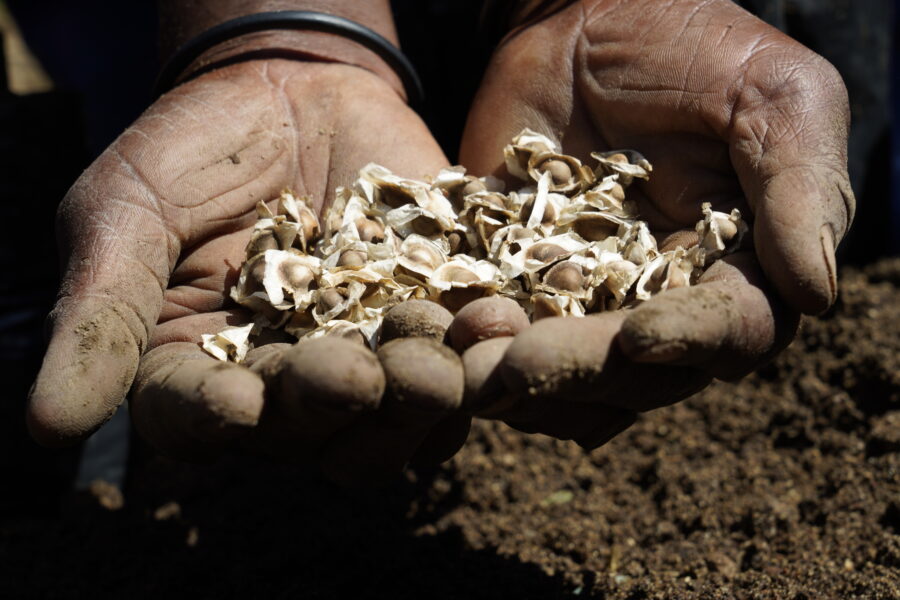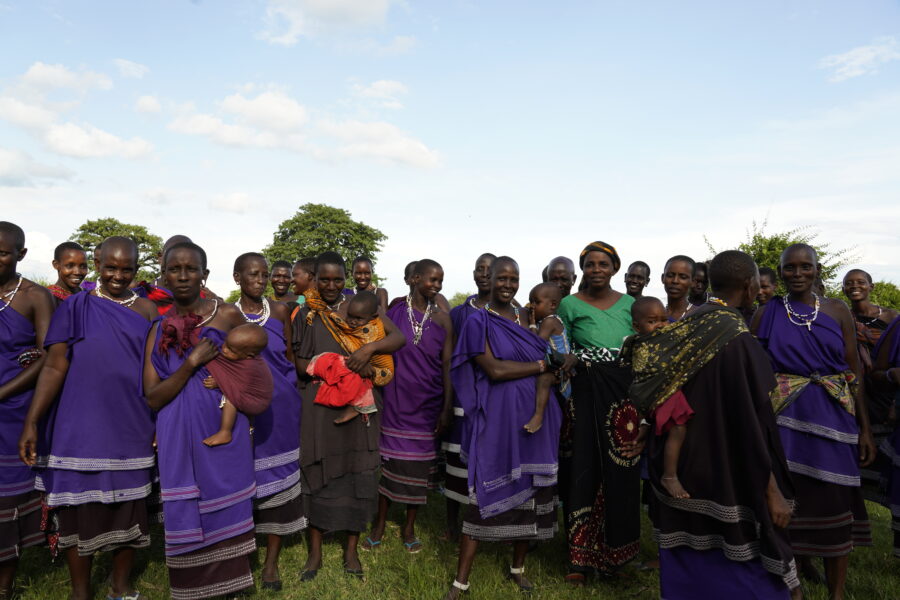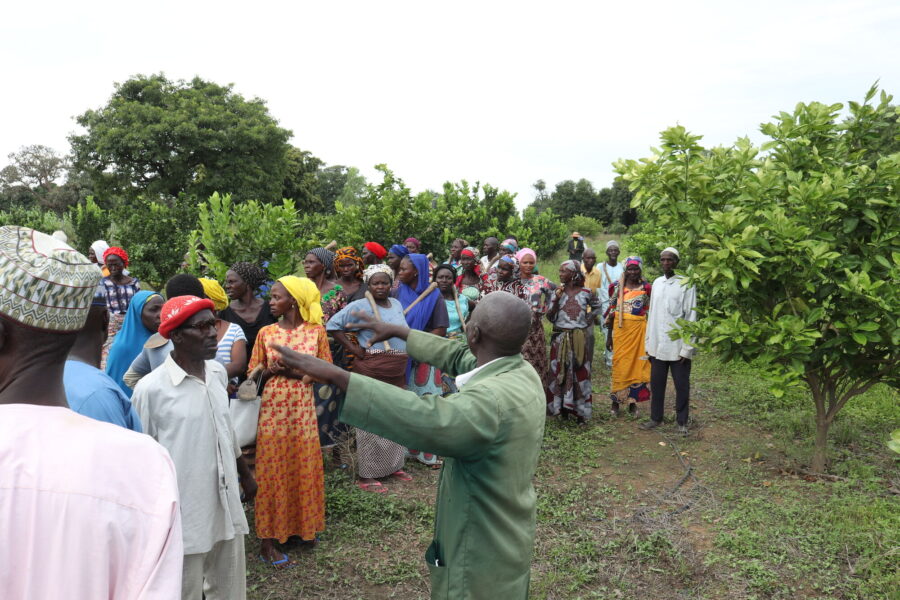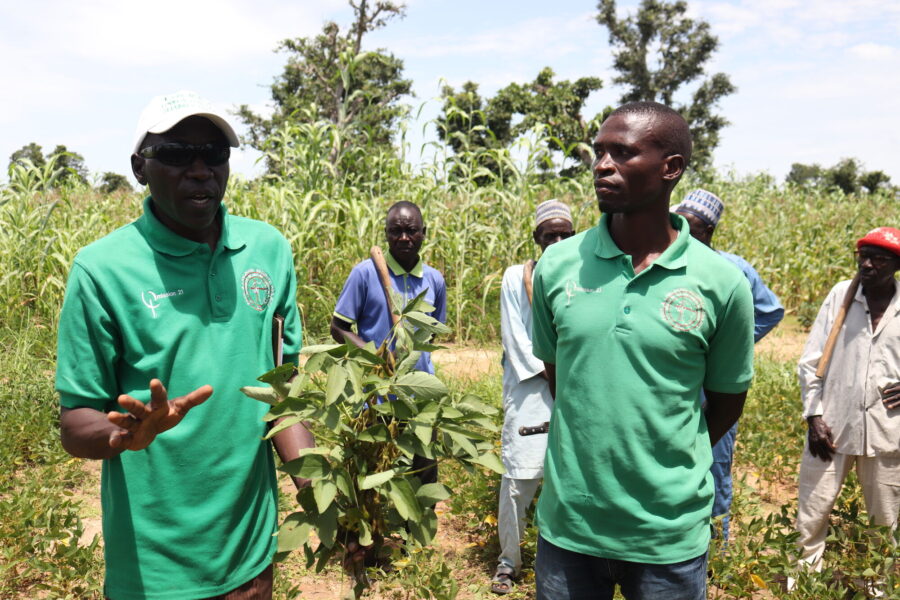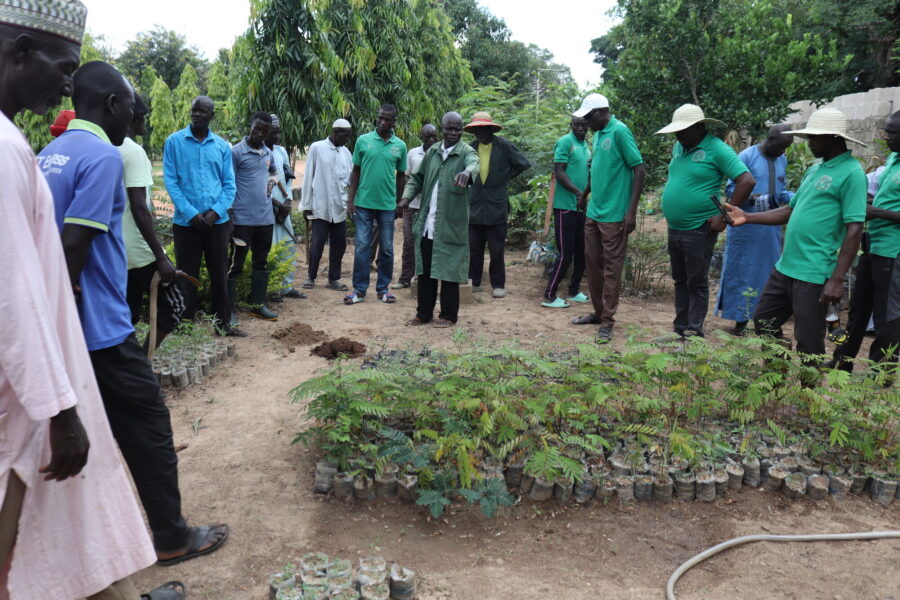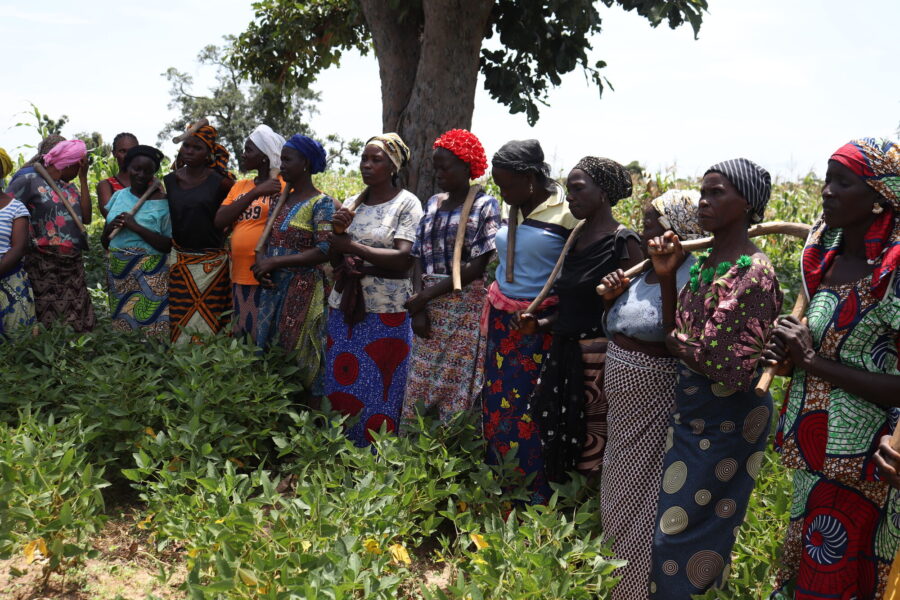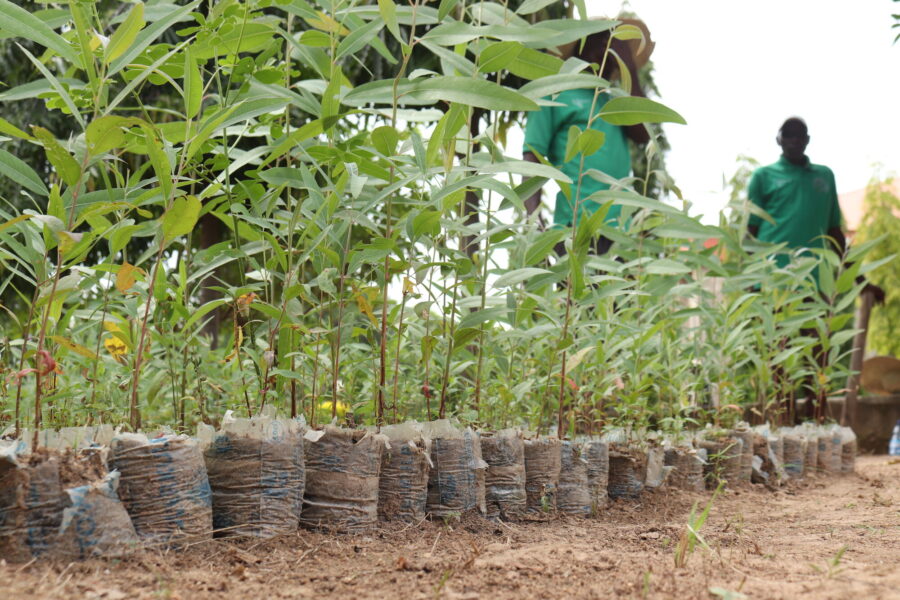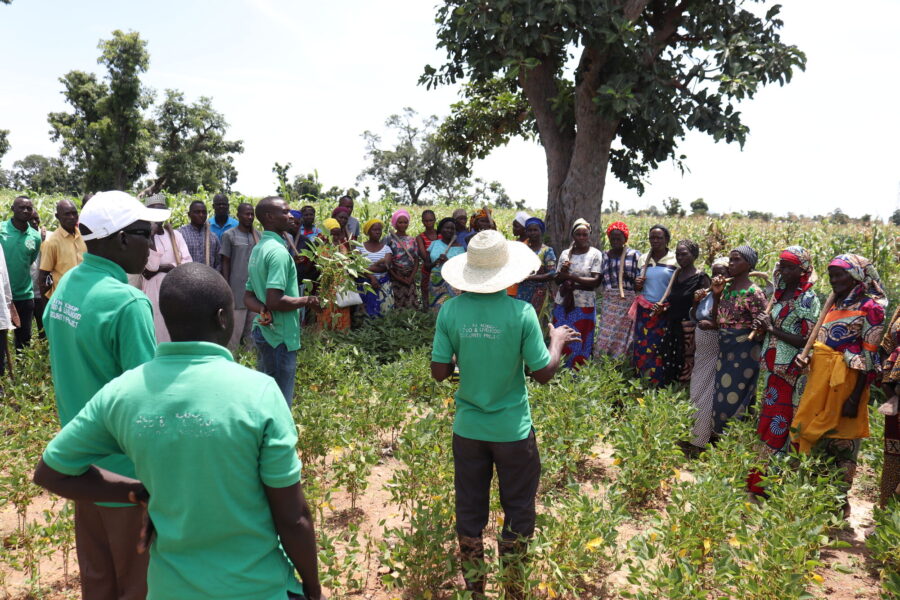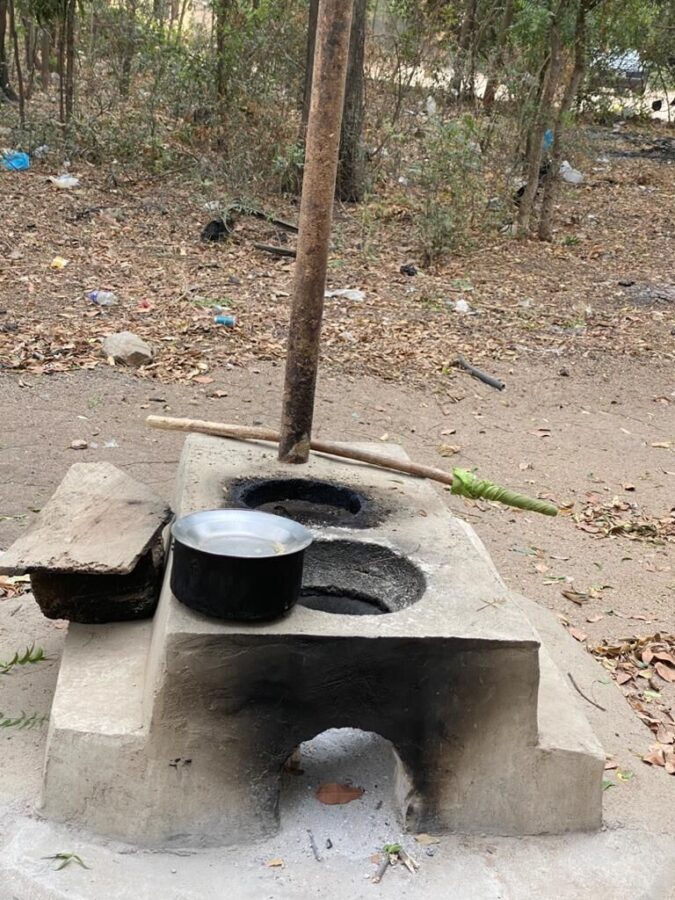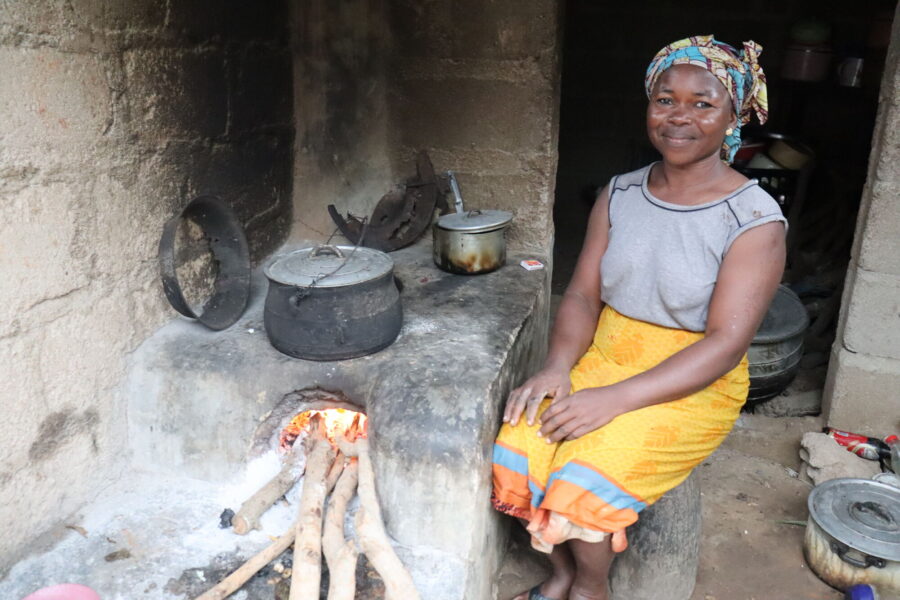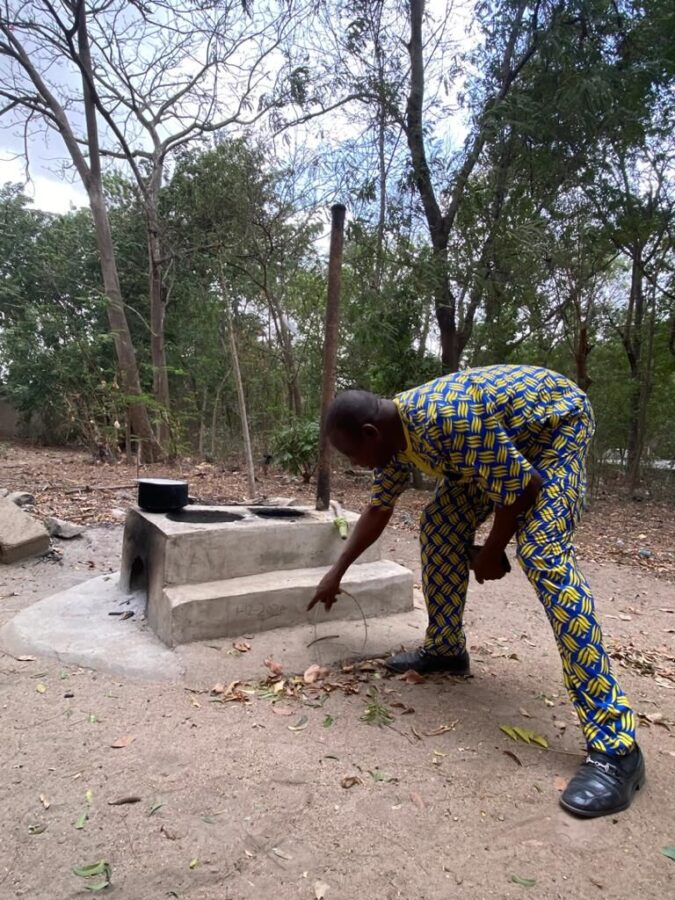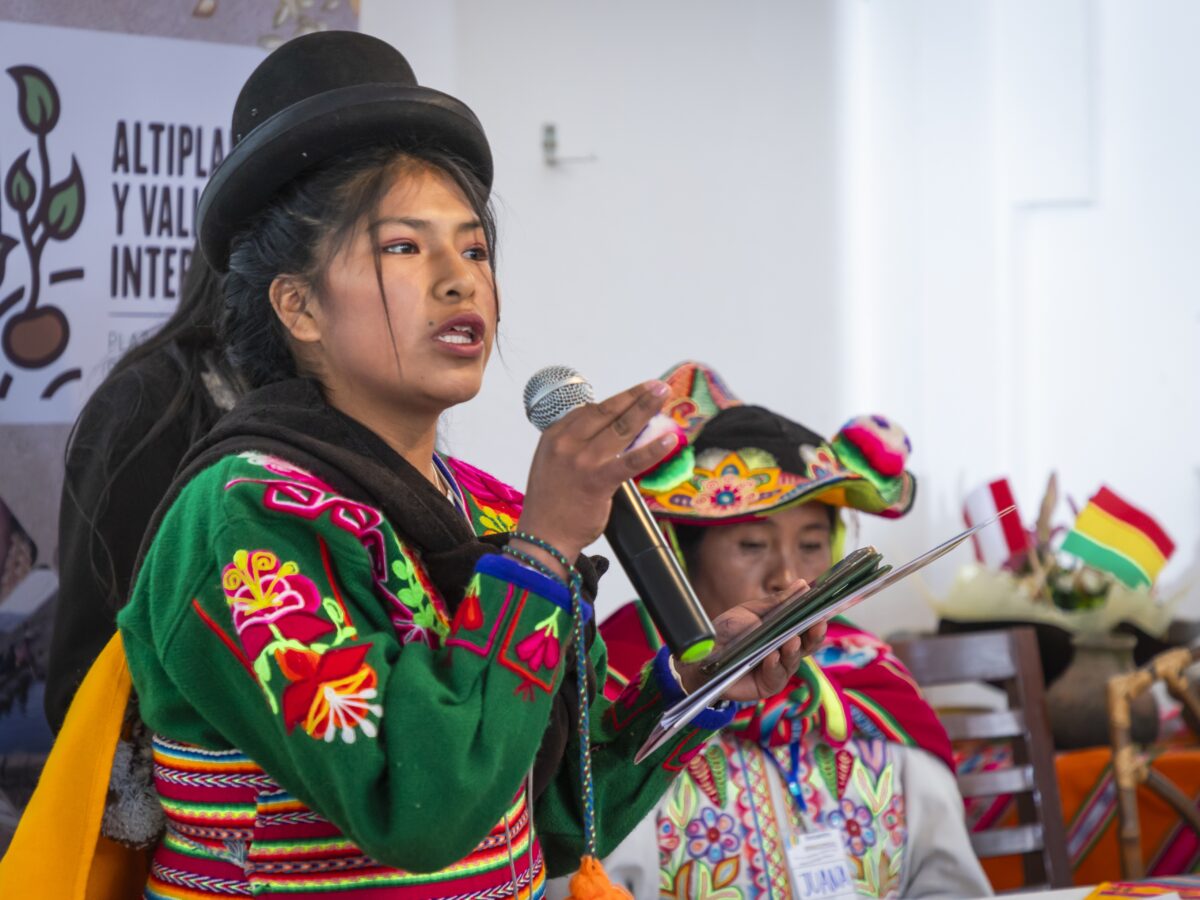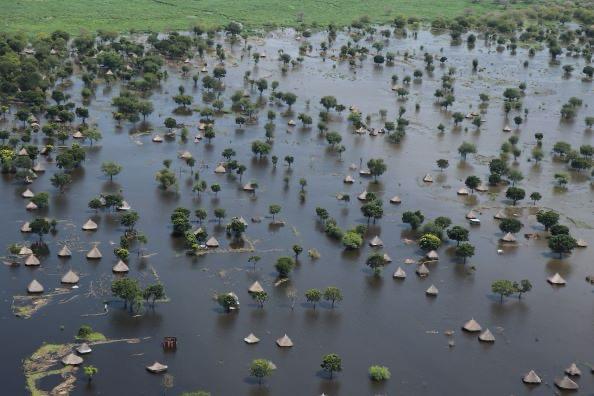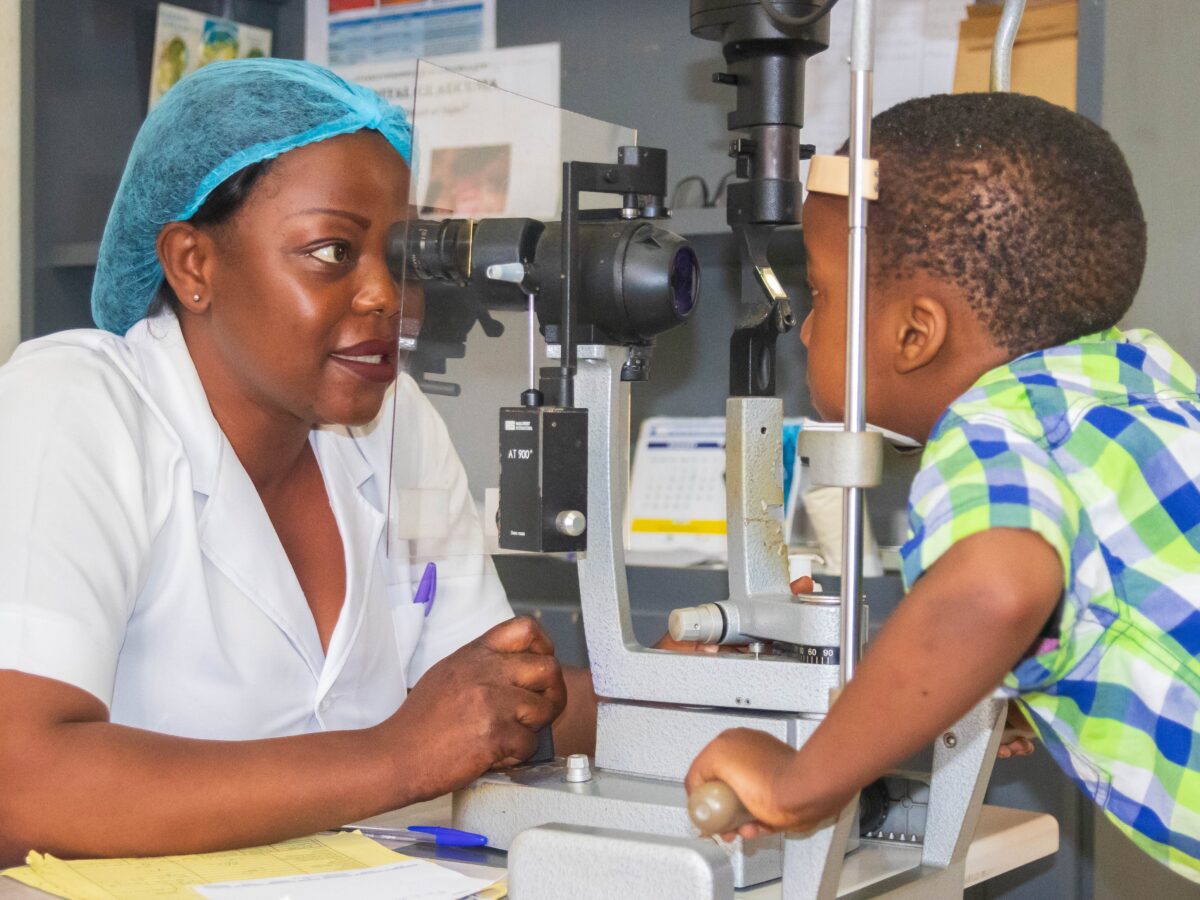
For climate justice and environmental protection
Climate change and hunger are pressing global challenges. Despite sufficient food production, 735 million people go hungry and one billion are chronically malnourished. As part of the polluter pays society, we have a shared responsibility for those whose livelihoods are threatened by climate change. Mission 21's projects support rural and urban households in adapting their livelihood strategies to climate change and make an important contribution to water conservation.
By working with local partners, we promote agroecological methods to ensure sustainable food security for smallholder families. At the same time, we are committed to raising awareness of a resource-conserving lifestyle both locally and in Switzerland. Equal opportunities for women are particularly important here. In this way, we and our partners contribute to food sovereignty and the UN Sustainable Development Goals.
We are a member of the Climate Alliance Switzerland and also address the issue of climate change in our Courses for teenagers and adults.
A documentary film about our work
"Learning from each other, living sustainably"
Our projects worldwide
Donate to our agroecology and climate justice fund - so that the support can be used where it is most urgently needed.
IBAN: CH58 0900 0000 4072 6233 2, Fund no. 999.1321 Subject: Climatelima
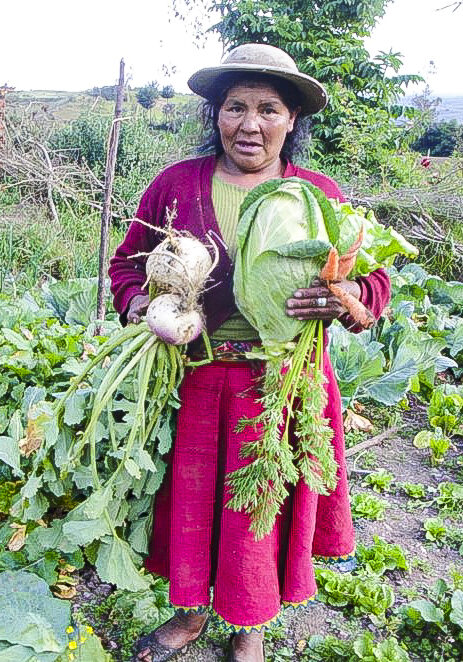
What is food sovereignty and agroecology?
Food sovereignty means that all people should have access to a just food system. They should be able to produce sufficient nutritious food locally and sustainably. To this end, traditional, indigenous knowledge should be renewed and supplemented with current ecological knowledge. This would also strengthen democracy and self-determination.
Mission 21 and its partner organizations link this concept to the following goals:
Smallholder families produce high-quality food according to agroecological principles and eat a healthy and balanced diet all year round.
The families cultivate the fields in a resource-conserving manner and in harmony with nature. Soil and water management is sustainable and takes into account new challenges in the context of climate change.
Women and men participate in political processes at local and regional level to promote agroecology and food sovereignty. Equal opportunities for women and their participation in decision-making processes are particularly promoted.
Where production surpluses occur, families receive further training and support in marketing the products and income generation.
Agroecological cultivation methods
Agroecology combines trans- and interdisciplinary knowledge by linking the social with the ecological dimension and combining traditional, as well as local knowledge with scientific findings. Agroecology also makes particular use of small-scale, diversified farming systems. It focuses on optimizing nutrient cycles and the interaction with local ecosystems. The basis for optimization is the available natural resources of sun, water, soil, species and variety diversity, as well as the knowledge of the local people and communities.
Latin America: Agroecological agriculture
In Latin America, our partners work intensively with over 5,000 Quechua and Aymara-speaking smallholdersto guarantee their right to food and provide them with new income opportunities. This is because global warming is creating major challenges: Water shortages, extreme frosts and an increase in diseases and pests are threatening harvests in the Andean belt and therefore the livelihoods of the population.
This is where we come in, with our partners training and supporting farmers in agroecological farming, sustainable cultivation and irrigation, and healthy nutrition. By using agroecological methods, the participants manage the soil and fields in harmony with nature and create sustainable nutritional foundations. Local seeds, organic fertilizers and small winter gardens ensure a sustainable and nutritious meal for the families.
Commonly used methods in agroecological farming include:
Biological pest control instead of the use of pesticides
Use of self-produced organic fertilizer instead of chemical fertilizer
Production and use of local seeds
Reduced tillage
Cultivation of mixed varieties and mixed crops
Undersowing legumes
Diversified crop rotation
Incorporation of bush and tree stands following agroforestry practices
Establishment of a natural balance between crop production and animal husbandry
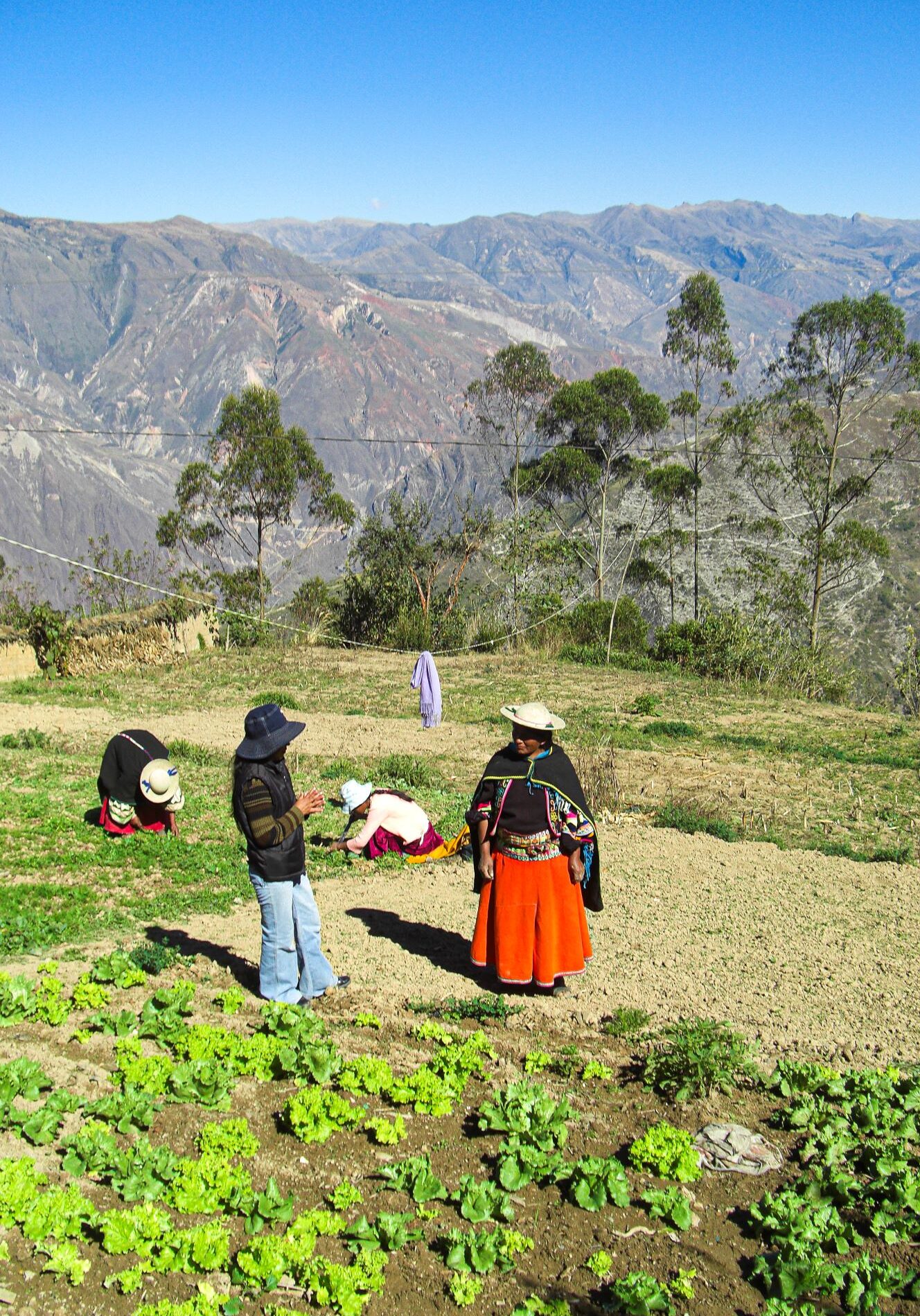
Doc Series: Food Sovereignty in the Andes
Watch our 5-part documentary on our food sovereignty projects in the Andes here.
Part 1
Part 2
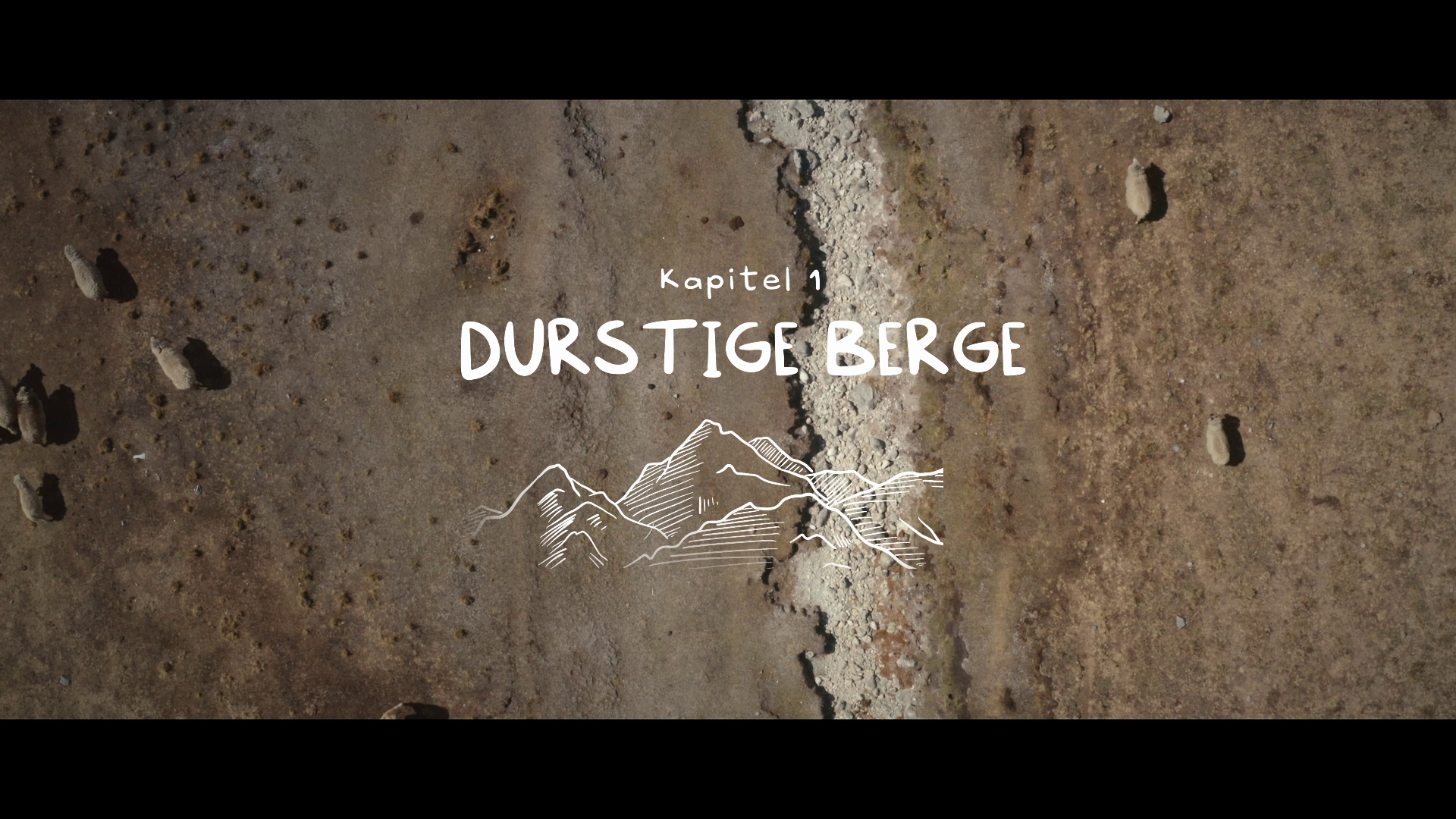
Part 3
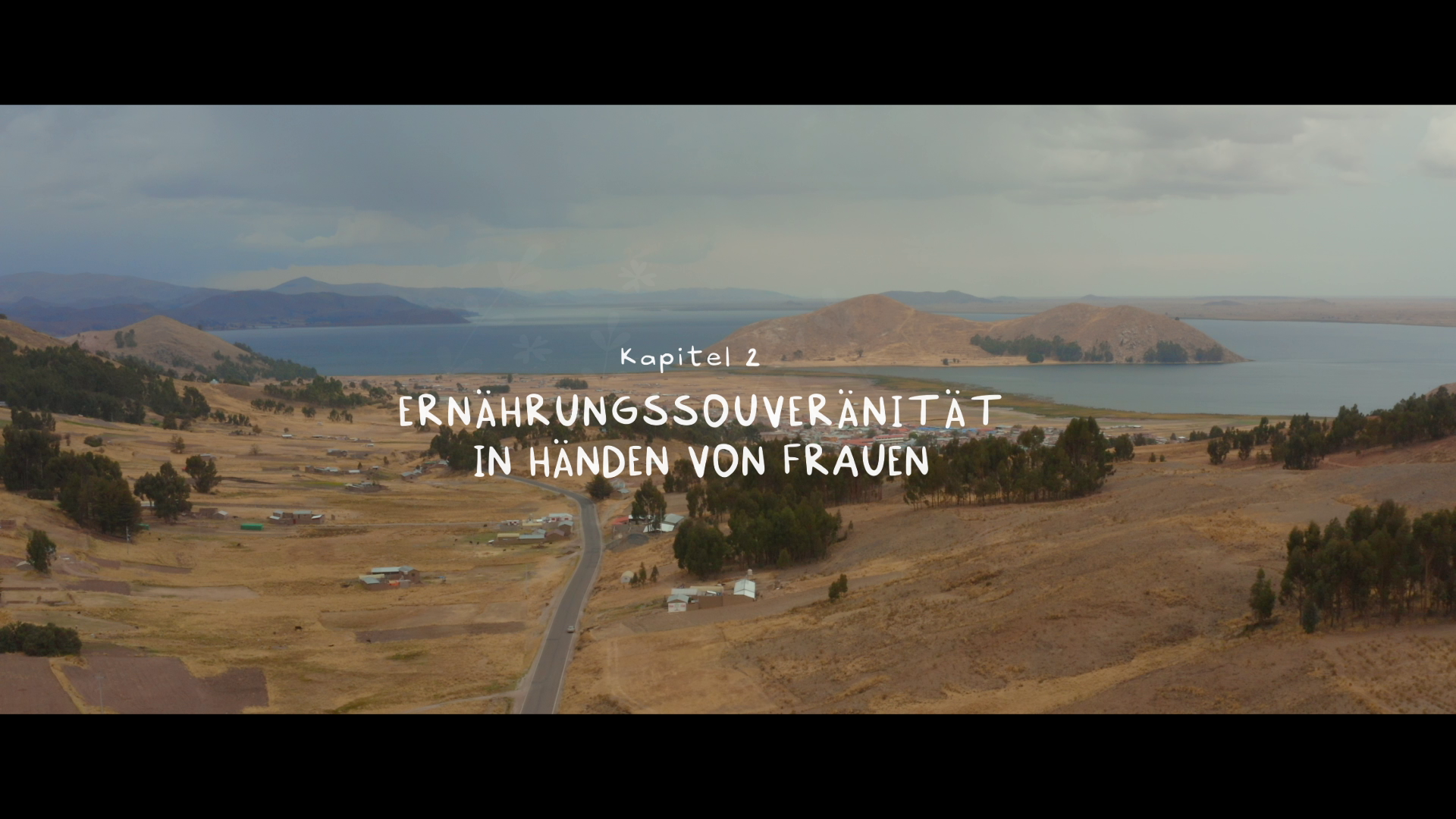
Part 4
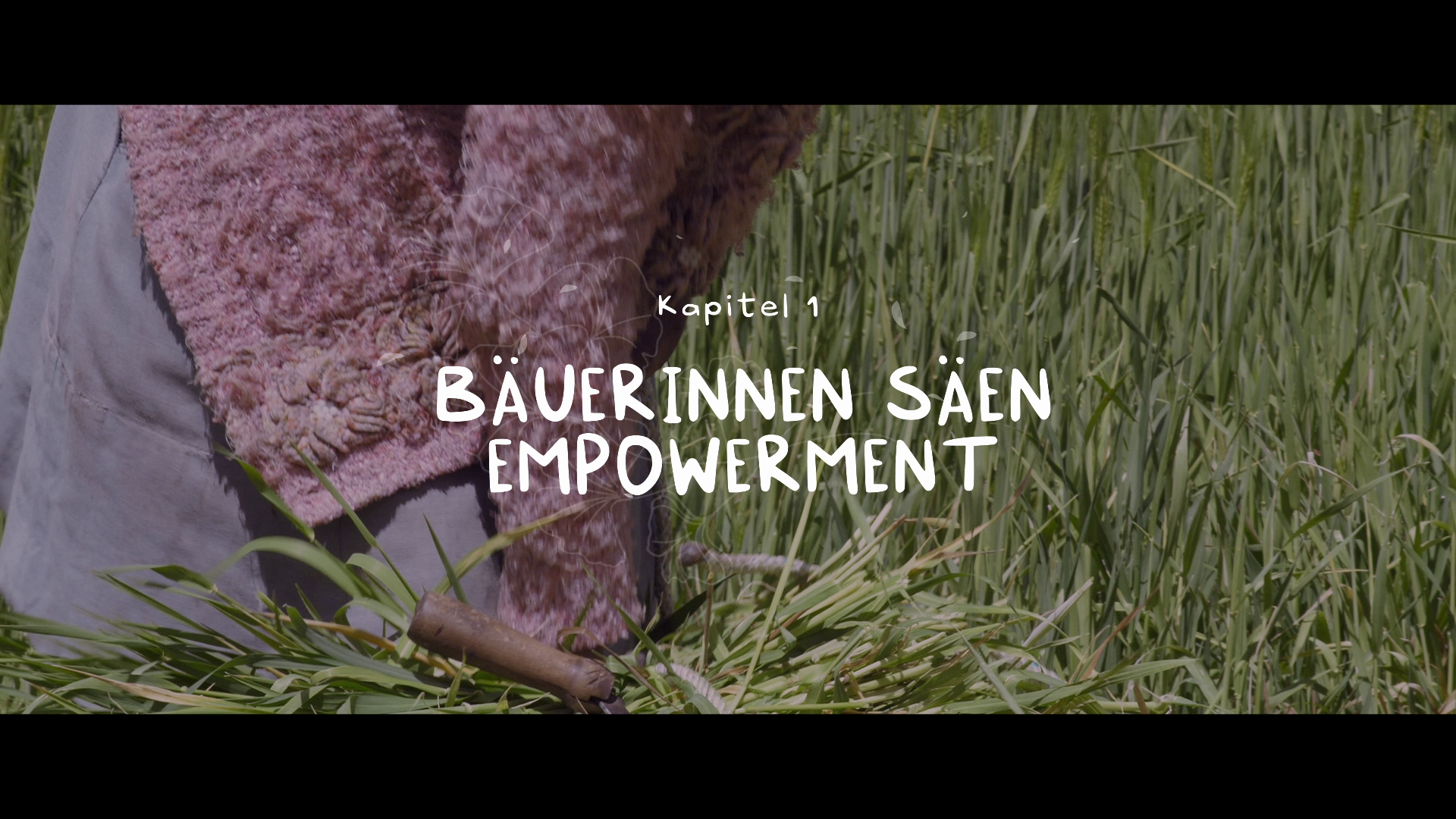
Part 5
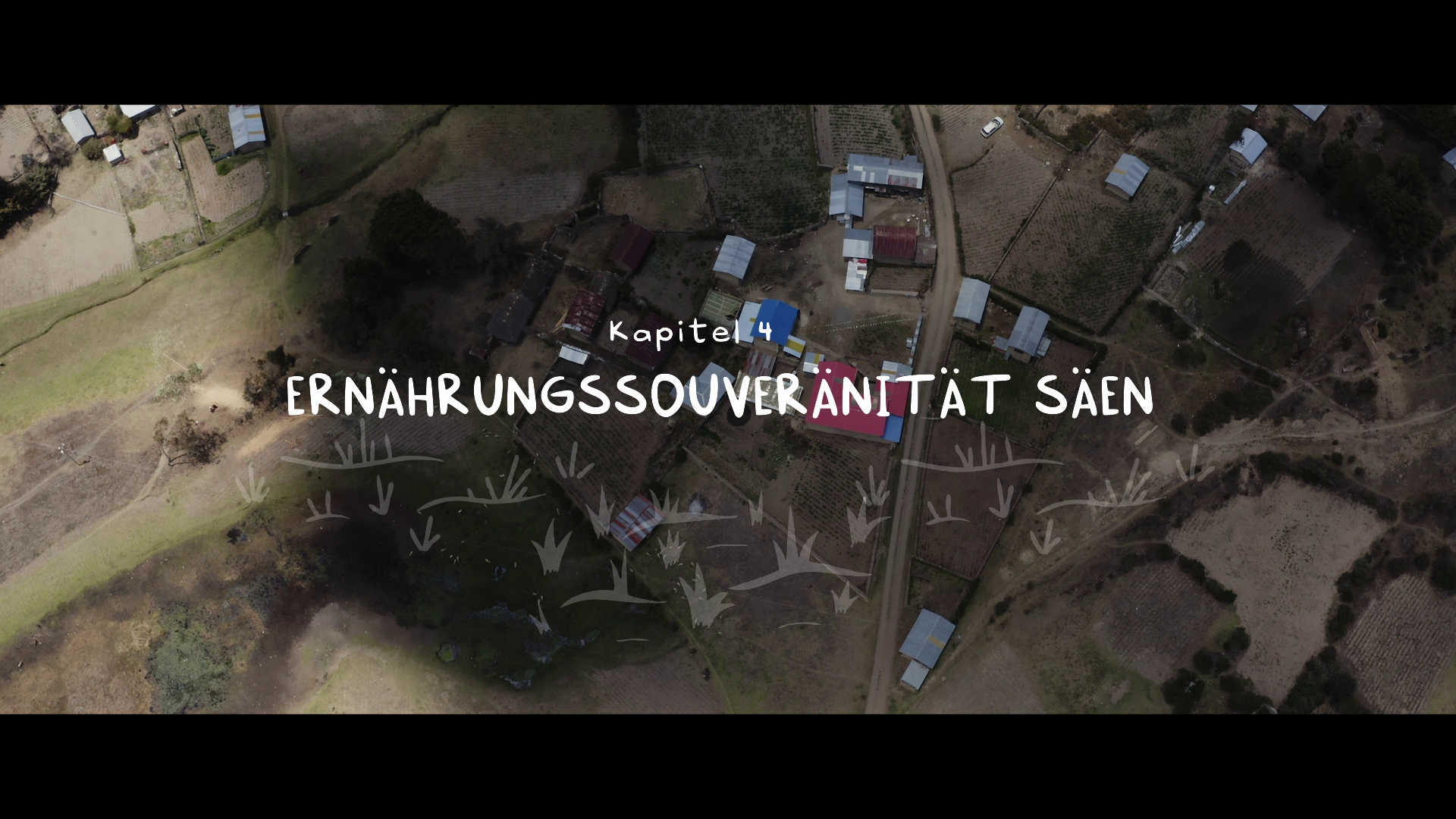
Lake Titicaca region: protecting the ecological and cultural heritage
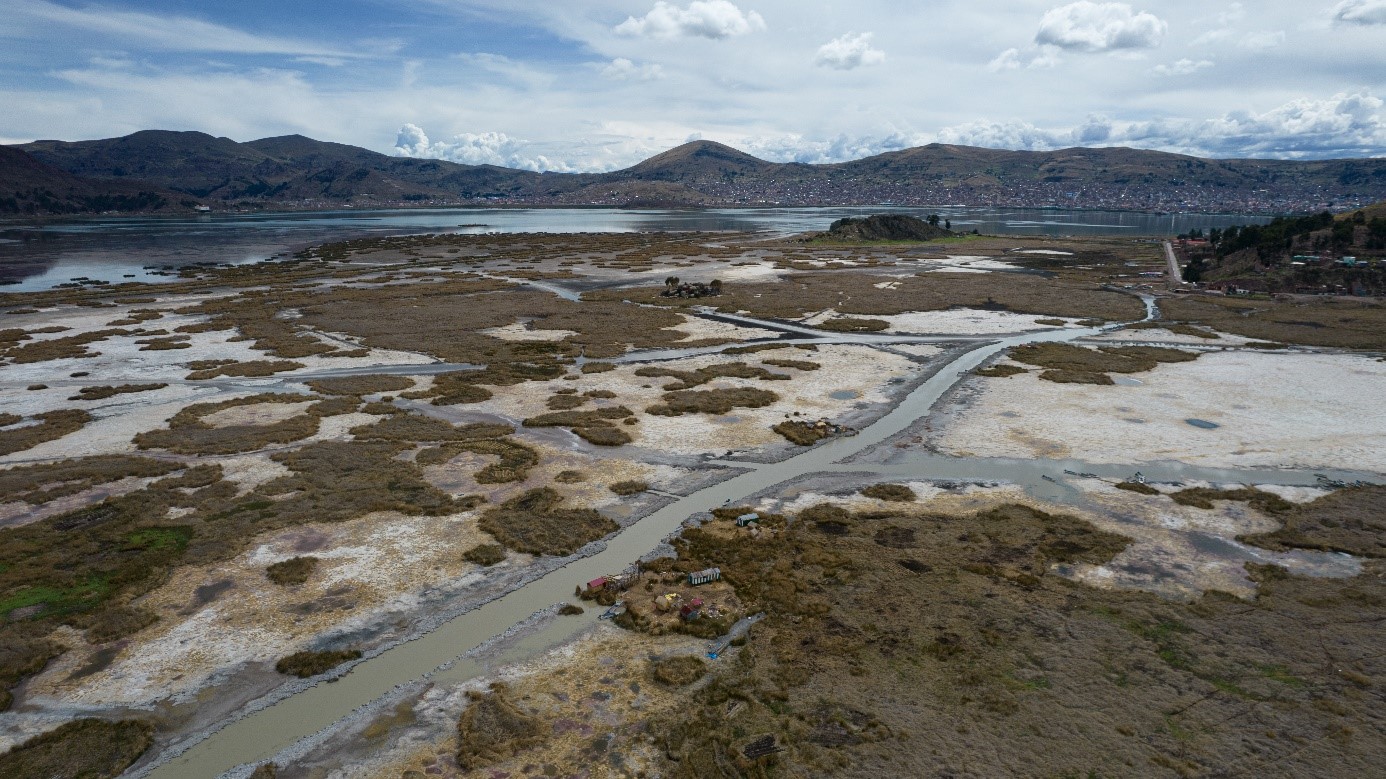
The Lake Titicaca region is facing a serious crisis that is jeopardizing the water supply for almost three million people in Bolivia and Peru. In addition to water scarcity, wastewater and waste balls from households, hospitals and illegal mining are polluting Lake Titicaca and its tributaries. This impairs the availability of water and healthy soil, makes sustainable food production more difficult and is a threat to food security.
Food sovereignty and water harvesting in the Andes to adapt to climate change
In the Peruvian and Bolivian Andes, our partner organization works with over 6300 Quechua and Aymara-speaking smallholder families to ensure their right to food. The project promotes agroecological farming methods that enable farmers to cultivate their land and fields in harmony with nature. They also create new food systems thanks to local seeds, organic fertilizers and greenhouses they have built themselves, which provide a sustainable supply of nutritious food and create new income opportunities. This strengthens the resilience and autonomy of families from one of the most vulnerable population groups.
Over 90% of the traditional smallholder farming families in the Titicaasee region have no technical irrigation infrastructure. If there is no rain, this severely restricts food sovereignty, as there is a lack of both drinking water and water for agriculture and livestock farming.
To address these problems, indigenous women's organizations and young people are working to save their sacred Lake Titicaca and its tributaries. To save and restore this unique Andean wetland, young people and women from rural and urban areas are working together with various Mission 21 partner organizations, particularly in the area of water management and storage (construction of water retention basins and ditches), but also reforestation activities and lobbying at local level.

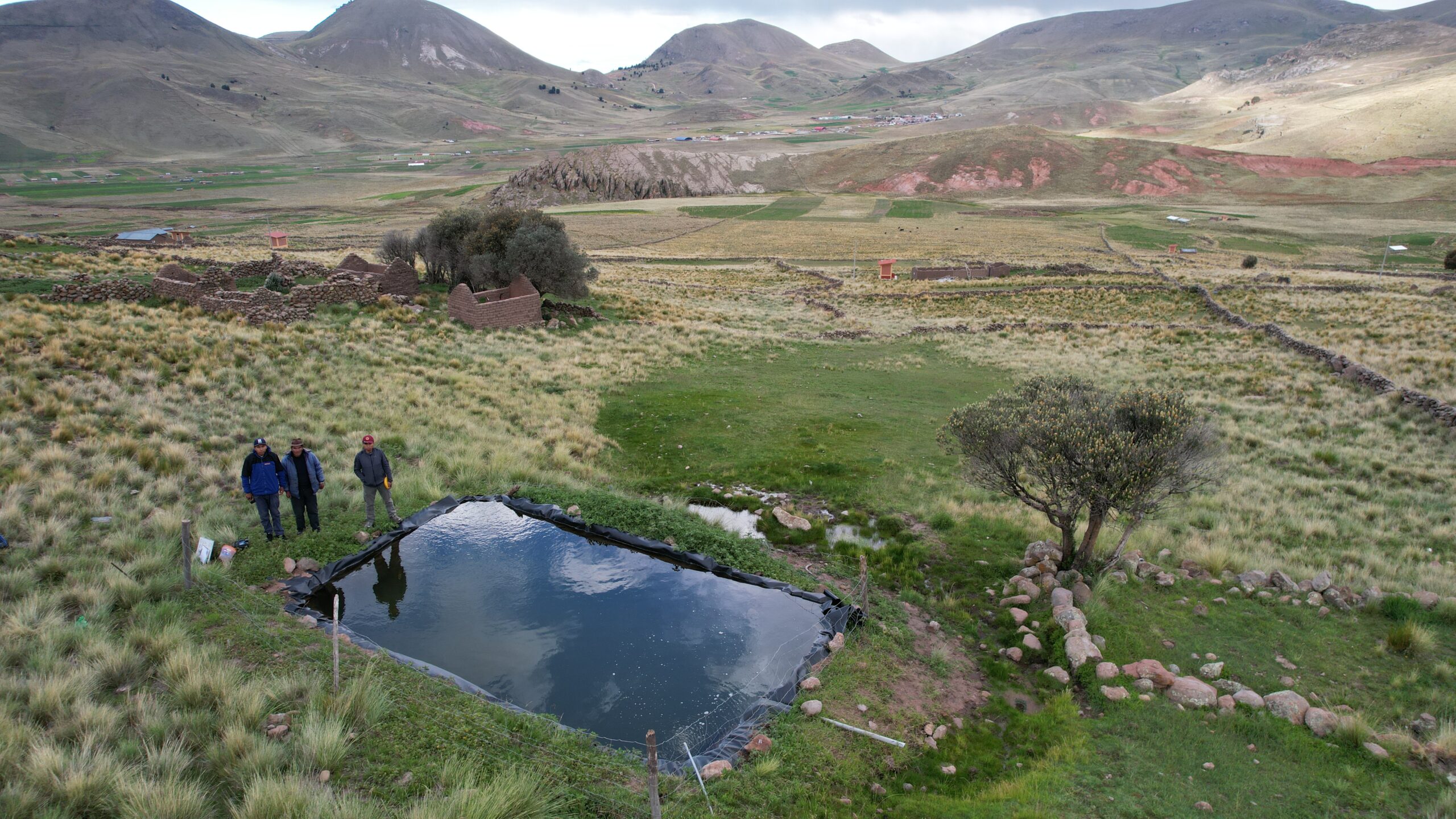
Pictures: Construction of water retention basins and ditches
Documentary film on coping with climate change in the Canchachi highlands
Environmental education and public relations
In addition to binational environmental action days and forums, our partners organize creative street campaigns and theatrical performances with young people to raise awareness of environmental protection in society as a whole and encourage the authorities to take concrete measures.
The Lake Titicaca region is important from a historical perspective because the creation history of two important civilizations originated at Lake Titicaca - the Tihuanaco and the Incas. Two civilizations whose archaeological remains attract thousands of tourists every year and whose descendants, the Aymara, Quechua and Urus-speaking indigenous communities, continue to keep the cultural and spiritual legacy alive and make it possible to experience it.
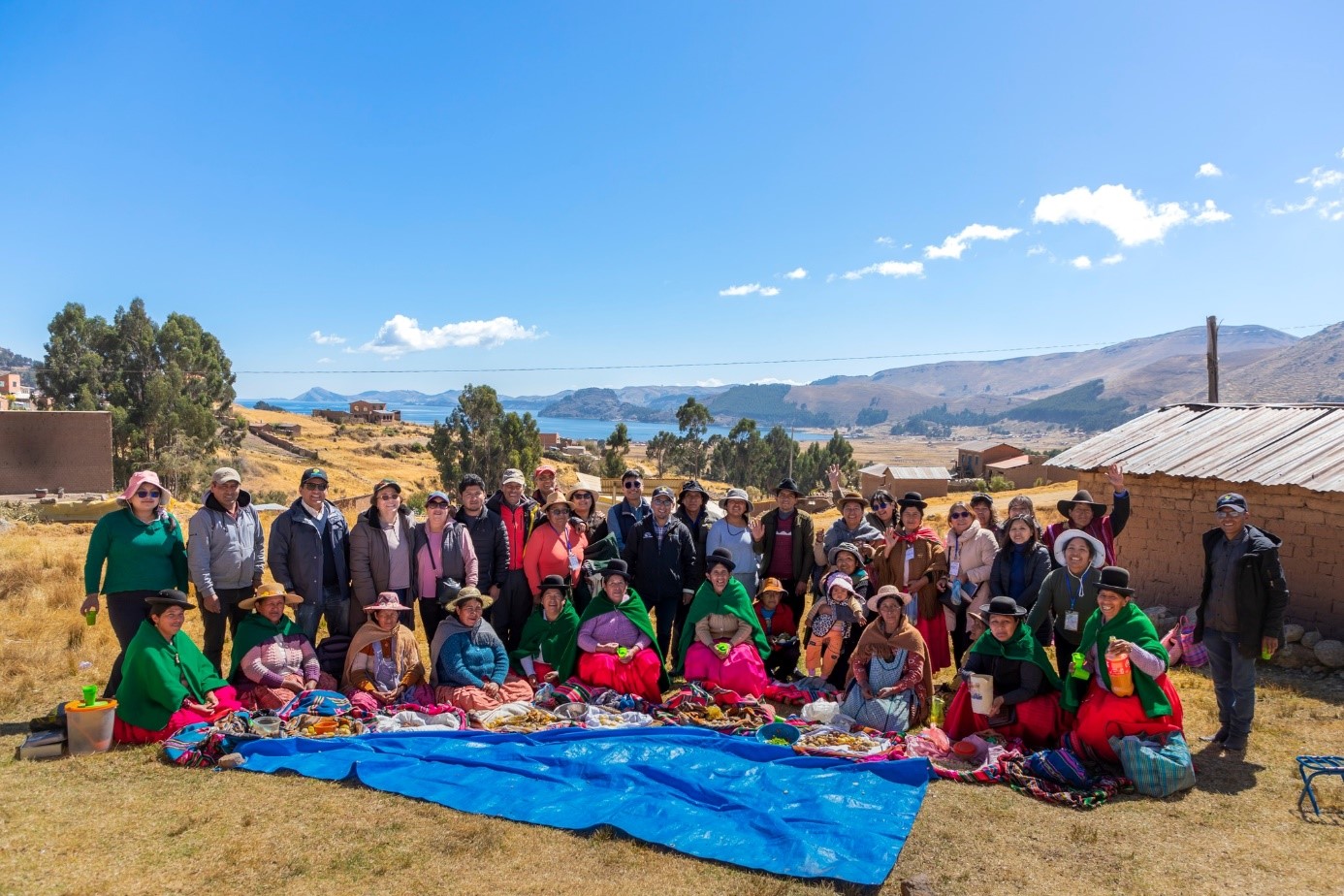
Picture: Women's collective at Lake Titicaca
Tanzania: Reforestation and well construction
In Tanzania, for example, we are active in the semi-arid Mbarali district and support the population to be able to feed themselves sustainably. One important measure is reforestation to reduce erosion and improve soil fertility. The focus is on the drought-resistant moringa trees, which can be used by the people in many different ways: the leaves as a source of food, the seeds for water purification and for the production of soap. There are plans to expand the project with neem trees.
170 women from pastoral communities have already (Massai) seminars on sustainable Agriculture, tree cultivation and environmental protection visited. New wells were drilled at two locations and equipped with solar pumps. and water tanks. They now supply over 3,500 people with fresh water. The first tree nurseries and demonstration areas have been established. The planting of Moringa trees is in full swing.
Nigeria: Production of organic fertilizer and energy-efficient cooking stoves
In Nigeria, we work together with smallholder farmers
families in the north-east of the country. The consequences of climate change - increasing extreme events such as droughts and floods - are particularly noticeable here. We support two local partner organizations that train farmers in sustainable agriculture, the use of mixed crops, organic fertilizers and methods for environmentally friendly pest control. We promote the construction of energy-efficient stoves and various reforestation activities.
The podcast from Mission 21

Mission 21's podcast provides an insight into the realities of life for people working in our partner organizations in Africa, Asia and Latin America. The podcast offers reports, stories and interviews with people in the Global South who are working for justice and peace for all.
It starts with six audio pieces from Latin America. Hildegard Willer, a freelance journalist who has lived and worked in Peru for over 20 years, meets her interviewees in the greenhouse, in the church or in the victim protection center for persecuted people. She talks to project participants about their worries, but also about what makes them happy and hopeful.
Alternative farming models and food production systems would not only offer promising solutions for dealing with the climate crisis in Switzerland, but would also have a positive impact on (soil) biodiversity, water and soil protection, and thus on Switzerland's ecosystems. However, promoting and implementing alternative agricultural management methods and modified food production systems in Switzerland that lead to a measurable positive impact on the environment requires a willingness to act on the part of all stakeholders involved - from farmers, wholesale distributors and politicians to consumers.
What can be our contribution as consumers?
Reduce consumption of animal products
Prefer products from organic production
Seasonal and regional food consumption
Direct purchase of agricultural products from farmers
Minimize food waste in the household
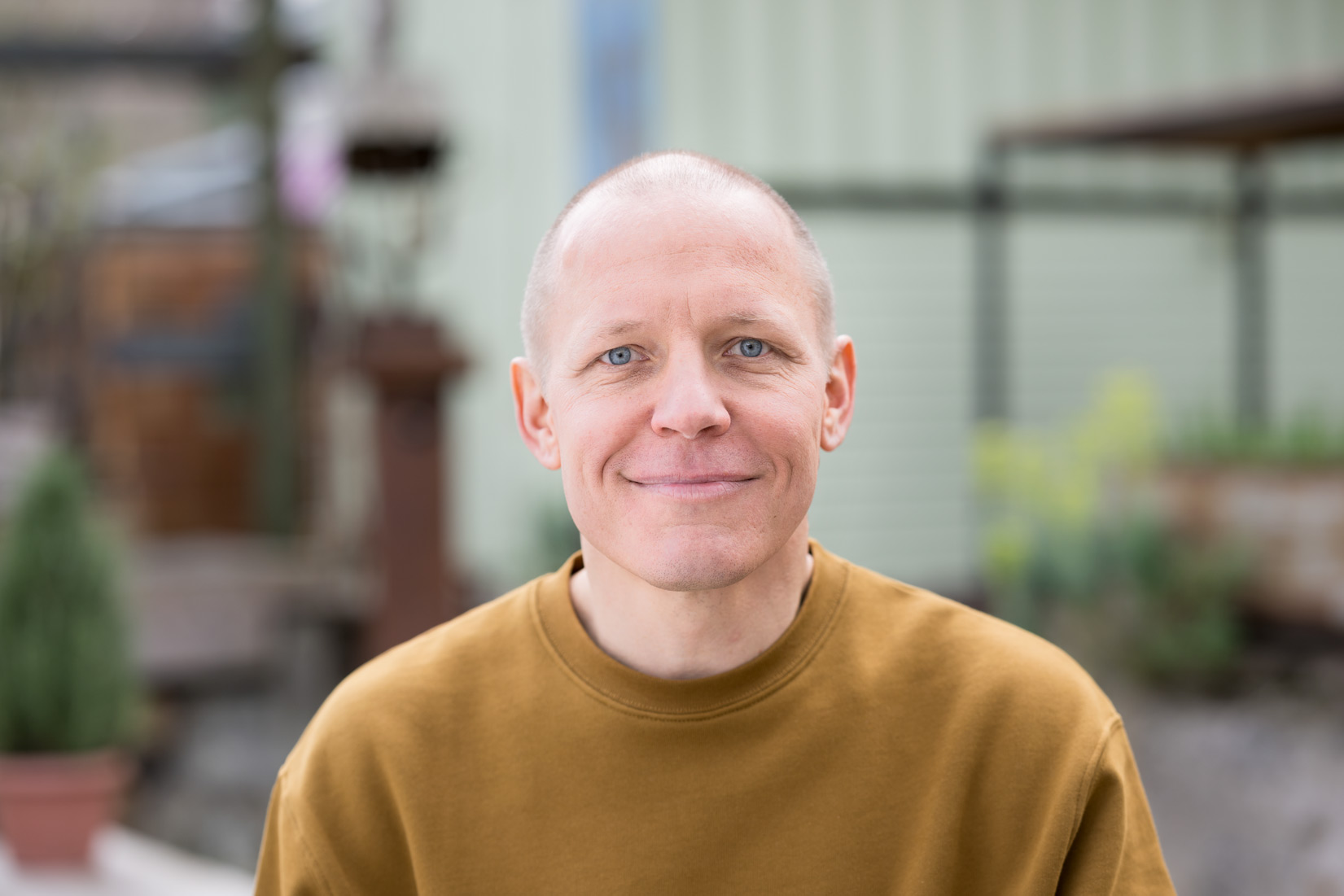
Interview
"Climate change is an opportunity to reshape our environment".
Birsmattehof in Therwil, BL supplies the Basel region with top-quality organic vegetables. Pio Jaworski has also been working at the farm for eight years. Together with other colleagues, he ensures that the vegetable baskets are packed and delivered and is responsible for contact with customers. Jaworski studied environmental and resource management - something he is now also very practically involved in.
Order now and do good for our climate
Seasonal calendar

Our seasonal calendar helps you to buy seasonal and regional food. This way you can also make a valuable contribution to the climate and do something good for your health!
Gift donation

There are many unnecessary gifts. Give your loved ones a gift donation! A ray of hope for farmers in Africa and Latin America and for our world.
Christmas cards
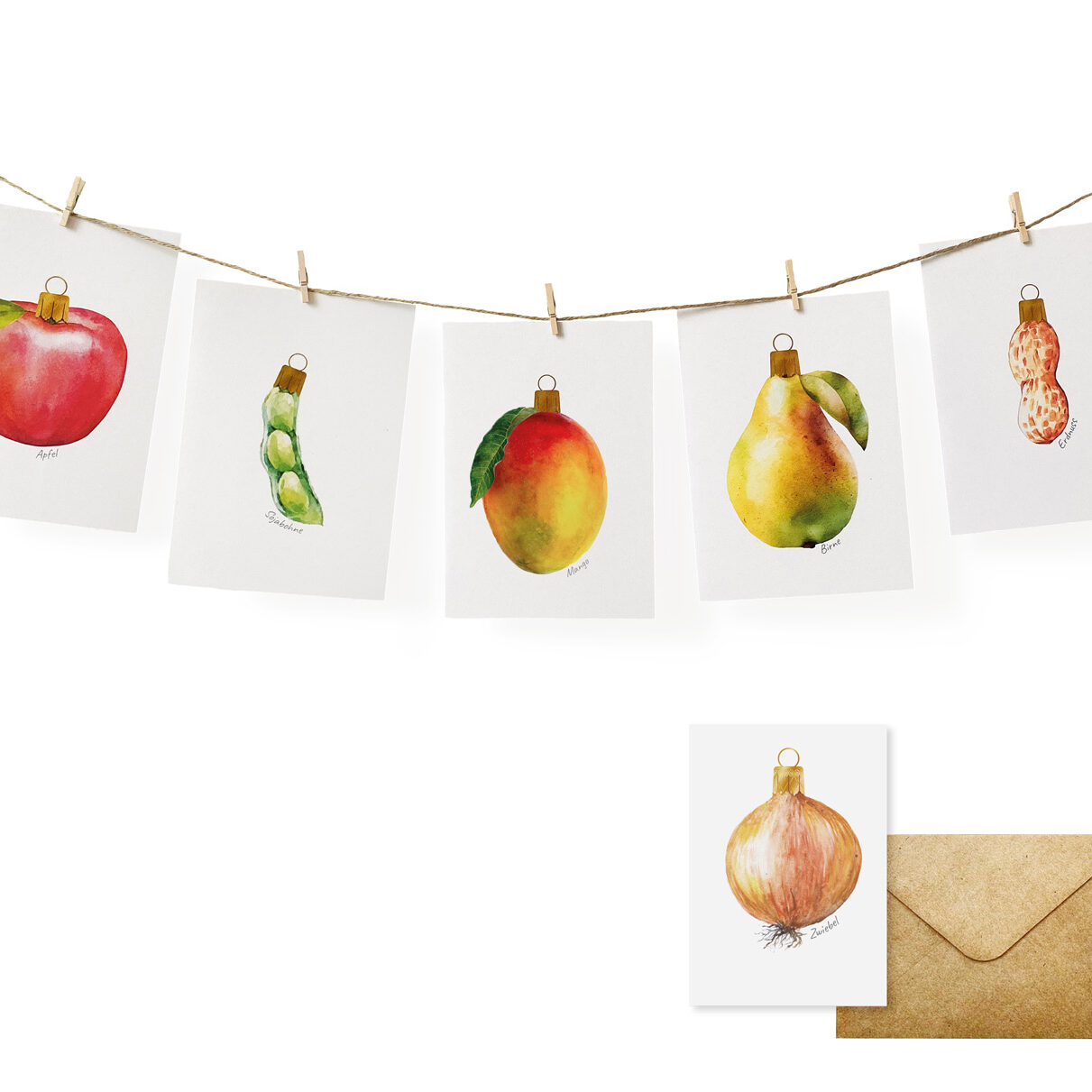
By purchasing our Christmas cards, you are supporting farmers in Peru and Nigeria with further training in ecologically sustainable agriculture. This enables them to secure their food supply despite the consequences of climate change.
More information

